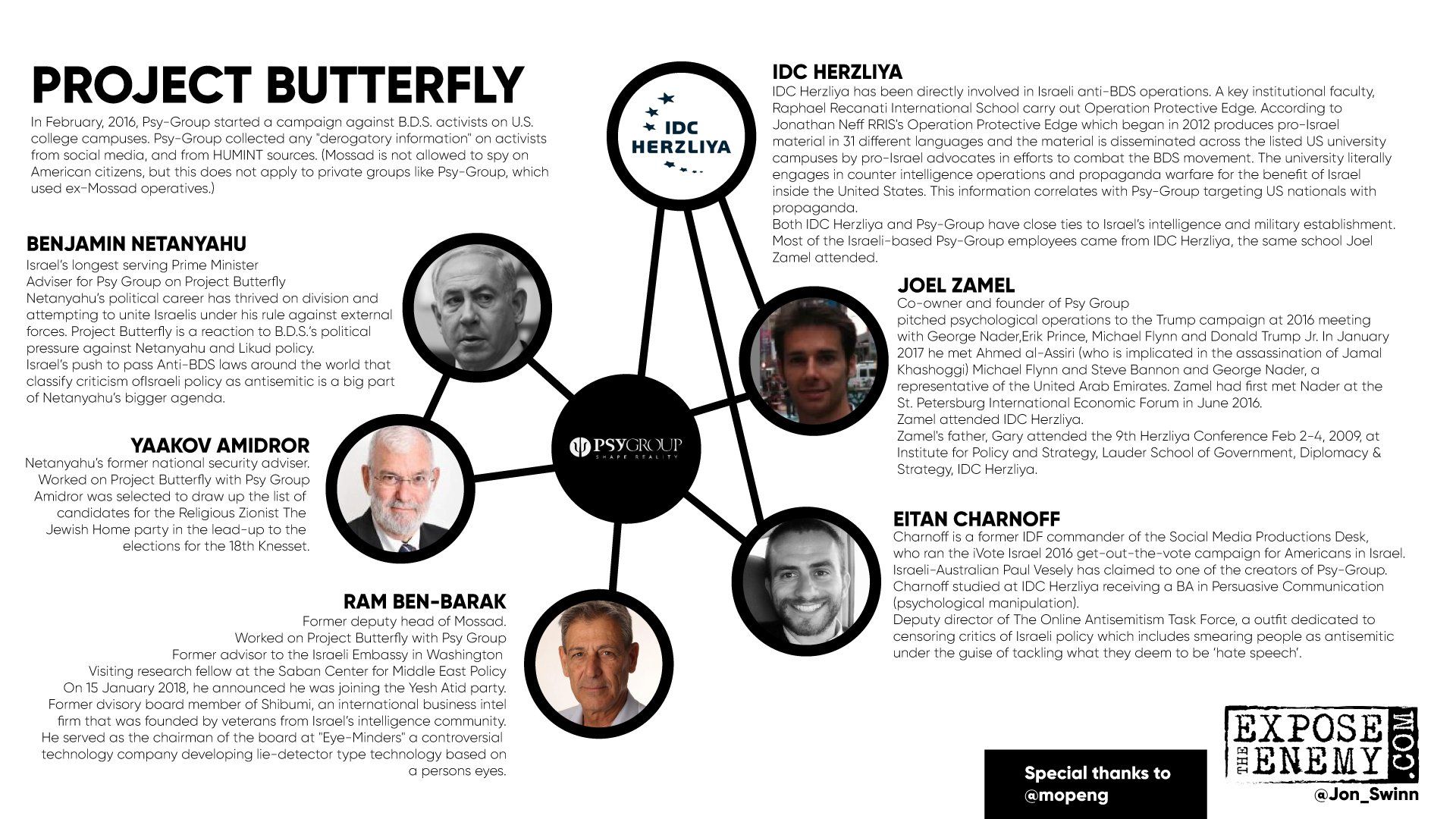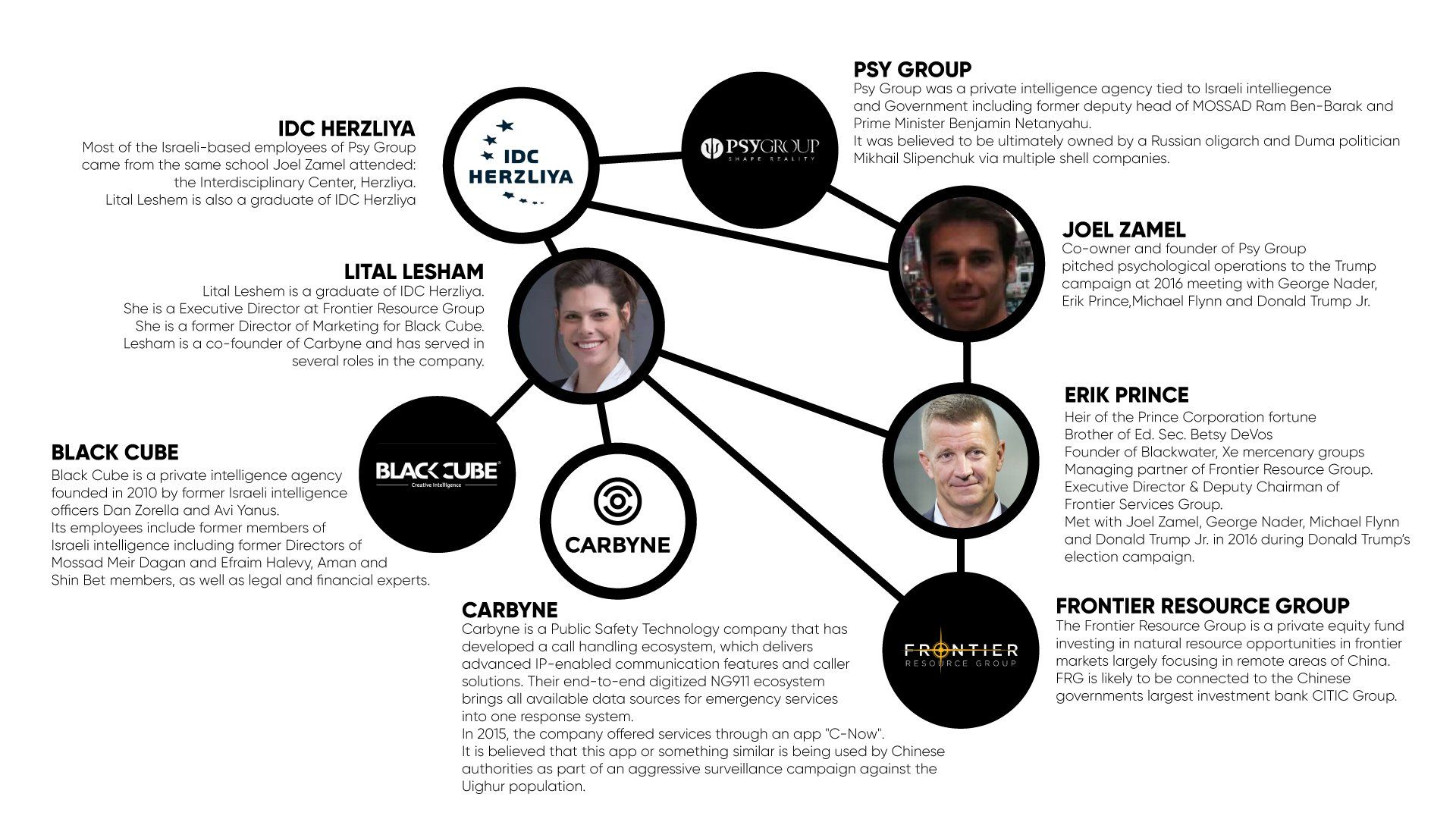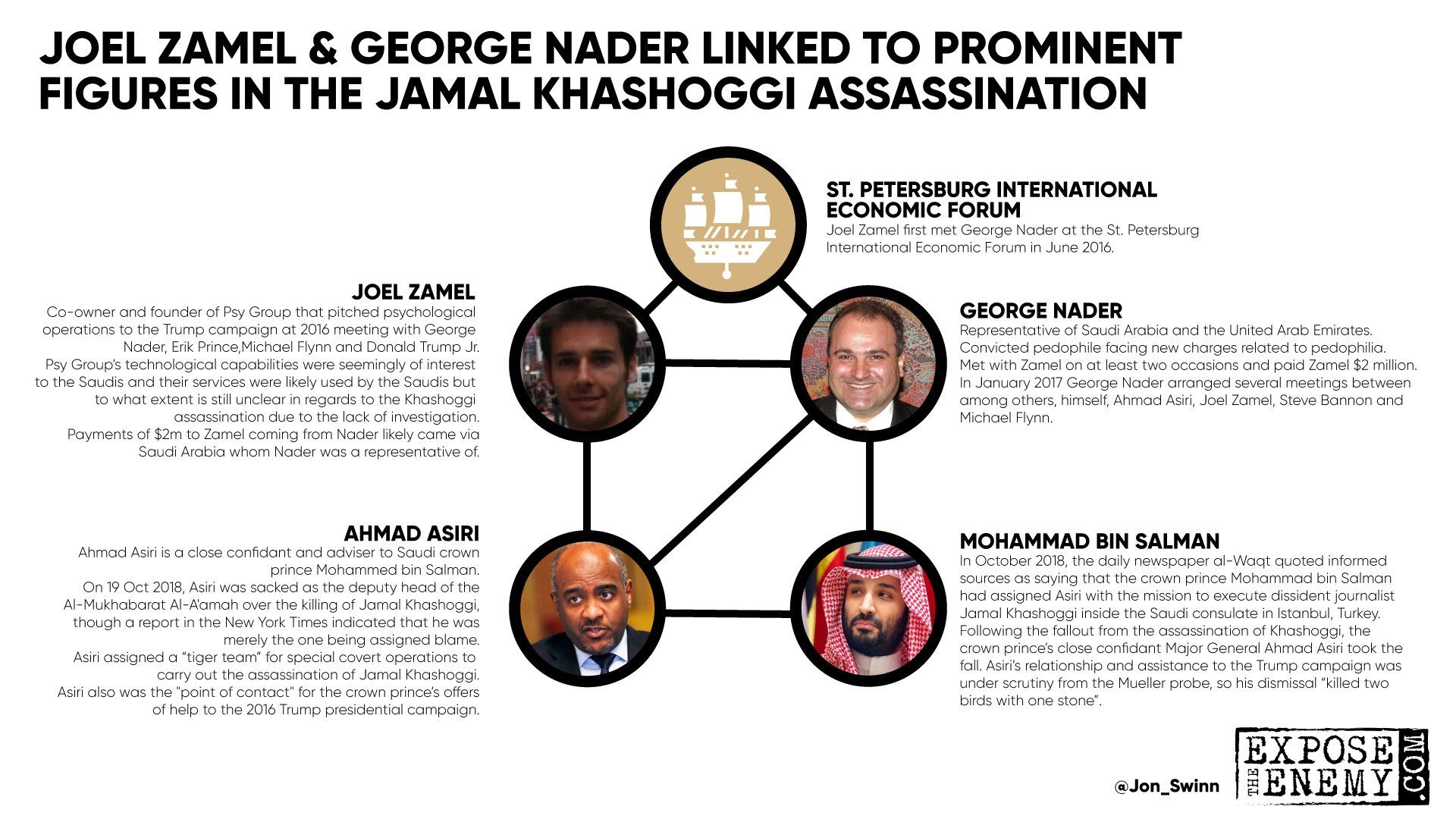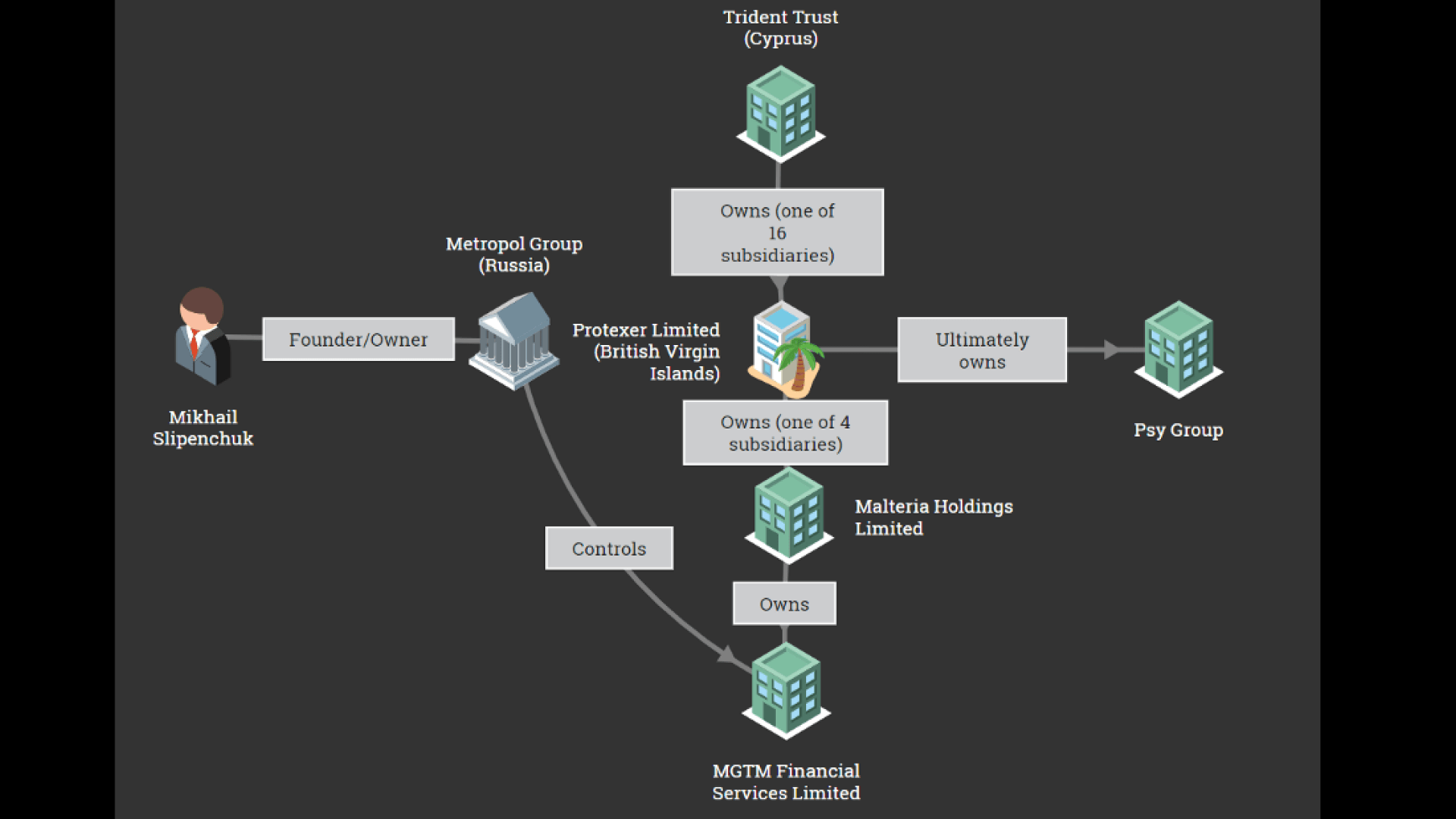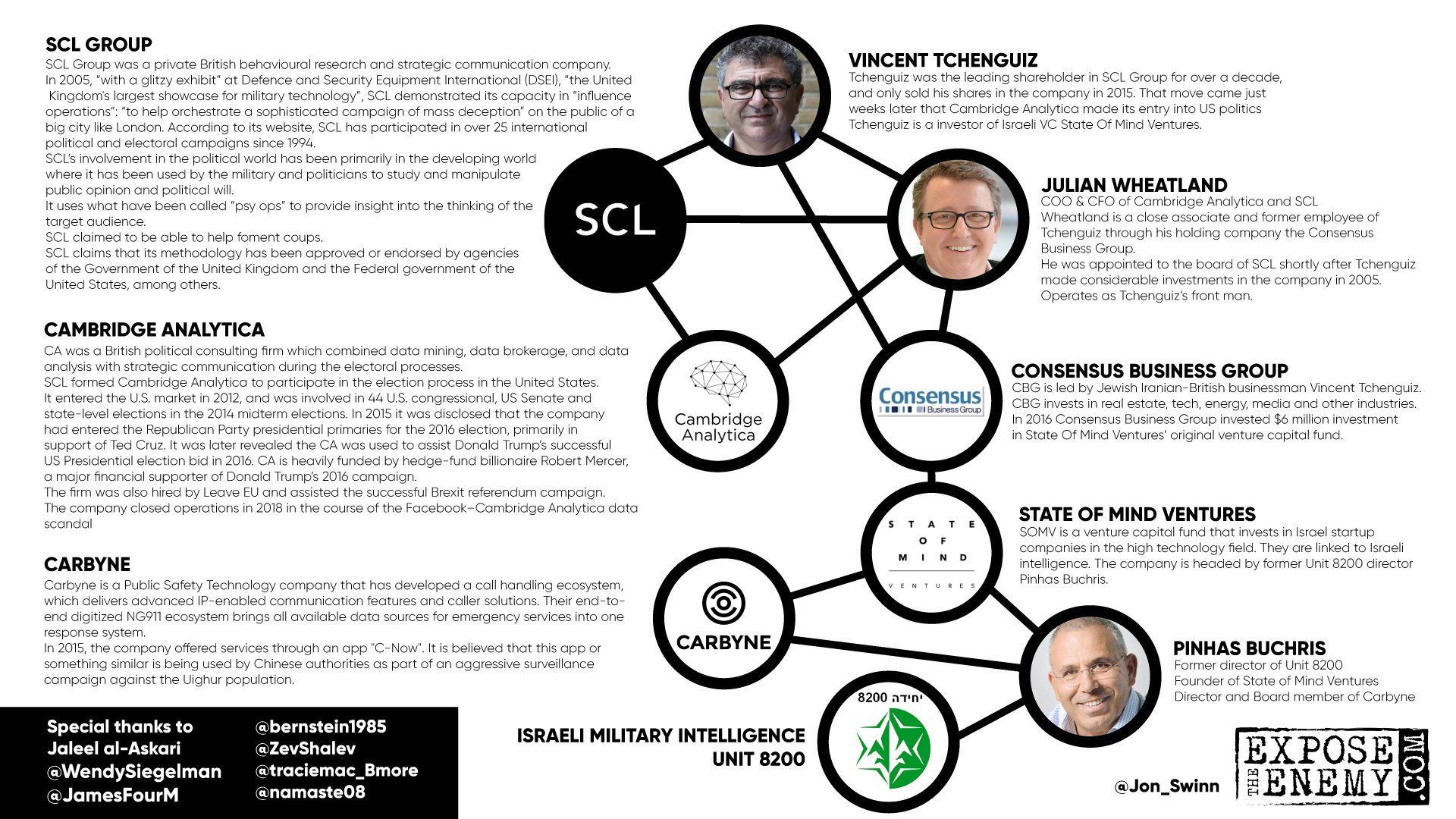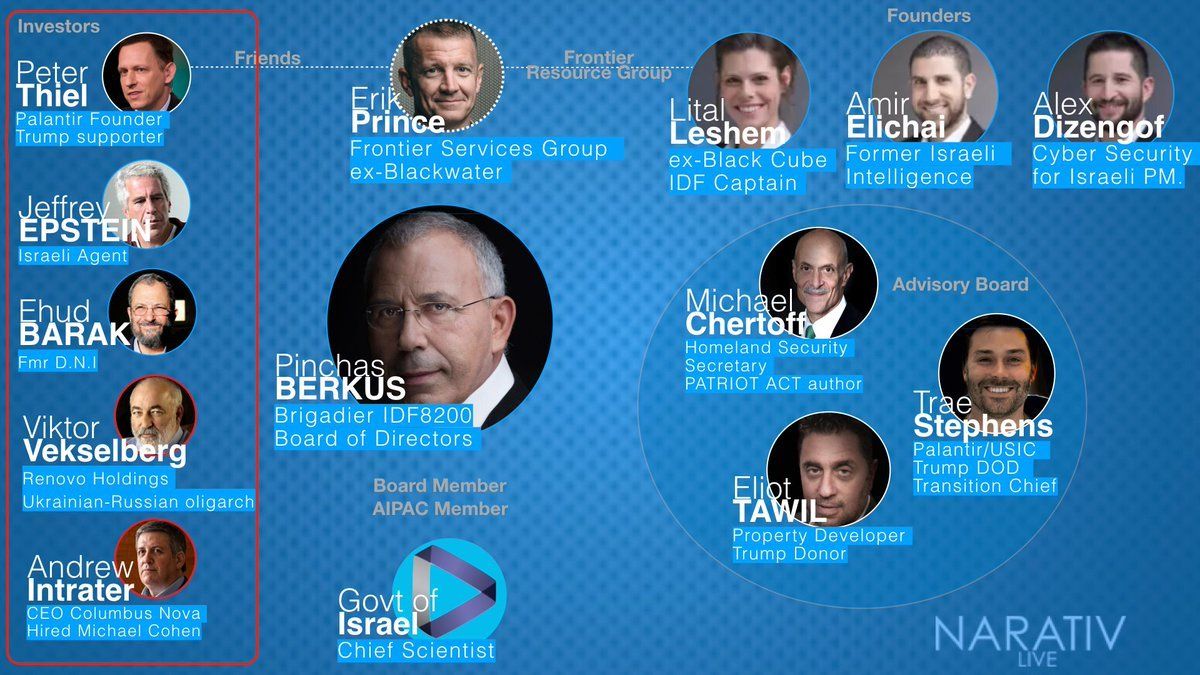ISRAEL &HIGH TECHNOLOGY
TALPIOT PROGRAM
Talpiot program is an elite Israeli Defense Forces (IDF) training program for recruits who have demonstrated outstanding academic ability in the sciences and leadership potential. Graduates pursue double higher education while they serve in the army, and they use their expertise to further IDF research and development in technological leadership positions. The program was inaugurated in 1979.
The initiators of the program were Professor Felix Dothan and Professor Shaul Yatziv of the Hebrew University, who submitted the idea to the Israeli chief of staff Rafael Eitan. The program is sponsored by the Israeli Air Force and IDF Administration for the Development of Weapons and the Technological Industry, and run under the auspices of the Hebrew University of Jerusalem.
Although Israel had no hi-tech infrastructure of note in comparison to the technological superpowers in 1979, Israel has had significant support from Zionists in the United States and has a large population with ties to the Soviet Union. Many former Soviet Jews played important roles in developing technology in the Soviet Union. Those skills and expertise have been transferred to Israel.
Taking this into consideration and understanding Israel’s Talpiot program and espionage operations, it is easier to understand how Israel is able to dominate the high tech sector globally. “Talpiot was intended to give Israel a homegrown military edge, but it is also a contributing factor to its edge in biotech, high-tech and academia [ISRAEL21c, 2012].” “The unit also has to help Israel stay ahead of the United States and other large countries with strong militaries [Times of Israel, 2016].”
Talpiot allows Israel to take US technology and hand it to Russia, China, and beyond, with zero repercussions. Its foundation can literally be found in a recent Congressional bill, ‘S.2497 – United States-Israel Security Assistance Authorization Act of 2018‘. By law, the US “shares” technology with Israel all under the guise of ensuring Israel’s national security.
How Israel totally dominates cyber security and has planted high level corporate spys all over the world via their Talpiot Program run under Israeli military intelligence.
https://www.youtube.com/watch?v=babgv2qRf4k&bpctr=1560295025
Jeremy Rothe-Kushel | Talpiot and Unit 8200: The Global Cyber Agenda for Kill-Switch Domination
https://www.youtube.com/watch?v=7bHLxpMigJE
Kill Switch - Israel & Microsoft "Oh My" Part One
https://www.youtube.com/watch?v=4ixedtjluqw
Kill Switch - Unit 8200 parties in New York "PWD"https://www.youtube.com/watch?v=-8MqBlvYVHY
[The Antedote podcast] How The Talpiot Program Works https://youtu.be/xZtskrYtNcA
Talpiot Talk #2: The Foundation Of The Talpiot Program Is In This Congressional Bill
https://www.youtube.com/watch?v=Ln6nKBKAzFs

RAFAEL EITAN
Eitan was an Israeli general, former Chief of Staff of the Israel Defense Forces (Ramatkal) that established the unique Talpiot program. Talpiot uses the extraordinary minds of Israel’s brightest youth for developing ground-breaking technology. These recruits, who undergo many tests to qualify for the program, complete a bachelor's degree at the Hebrew University, while studying special subjects that link the IDF with the latest scientific developments. After completing 40 months of schooling and training, the graduates receive officer ranks and are integrated into the various development and research units of the IDF.
The initiators of the program were Professor Felix Dothan and Professor Shaul Yatziv of the Hebrew University, who submitted the idea to Eitan.
Eitan was a junior officer in the Palmach, the Haganah's elite strike force, and took part in the 1948 Arab–Israeli War.
Eitan was promoted to the rank of General and was appointed by Ezer Weizman to be the Chief of Staff of the Israel Defense Forces.
His mother was descended from a Subbotnik family, who had arrived as part of the First Aliyah.

EVIATAR MATANIA
Professor Eviatar Matania is a graduate of the Israeli elite military-academic program Talpiot. He held professional and leadership roles in Israel’s defence community across the fields of R&D, technological project management, intelligence analysis, and operations research. Matania then worked in the Israeli hi-tech industry as an executive, as an entrepreneur and as a venture capital investment lead. Subsequently, he returned to the Ministry of Defense to lead the elite training programs for human capital in science and technology. In parallel, he taught Decision Making and Venture Capital courses at the Hebrew University of Jerusalem EMBA program.
Professor Matania holds a BSc in Physics and Mathematics (Hebrew University of Jerusalem), a M.Sc. in Mathematics with an expertise in Game Theory (Tel Aviv University), and a PhD in Judgment and Decision Making (Hebrew University of Jerusalem).
Following the Israeli governmental resolution on 7 August 2011 to establish a National Cyber Bureau to develop a comprehensive national security strategy for Israel, to lead the nation’s overall cyber policy and to develop the national cyber echo-system, technological capacity and economic growth, Matania was called upon by the Prime Minister to found and head the bureau, starting January 2012, directly under the Prime Minister. Upon Matania's recommendation to establish a dedicated operational organisation for the defence of Israel's civilian cyberspace, the Israeli government decided in February 2015 to establish the National Cyber Security Authority as a sister entity to the existing Bureau, and to combine them two as a one Directorate in the Prime Minister Office, headed by Matania as its first Director General. On 31 December 2017 he completed his six-year term.
In July 2018 he was nominated as a professor at the School of Political Sciences, Government and International Affairs at Tel-Aviv University and as Head of the Security Studies Program. In parallel, Matania serves as a member of adjunct faculty at Oxford's Blavatnik School of Government, where he convenes the cyber module.
Professor Matania has been a thought leader in policies of technologies, from both national and organisational perspectives, cyber strategies and national security issues, participating in the foremost international fora, and engaged by leading global companies, by top league universities (Harvard Kennedy School, Columbia SIPA, George Washington University), as well as by top government officials and formal committees (such as the US Senate Committees and Sub-Committee).
CERT
A group of companies including IBM, EMC, Cisco, Matrix and Rafael will build the national CERT (Computer Emergency Response Team). The team has been created in order to protect against cyber attacks. The national CERT will operate under the National Cyber Bureau. Rafael functions as the group's main contractor for the establishment of CERT headquarters.
The National Cyber Bureau, established in early 2012 by the Prime Minister, is responsible for setting up the CERT. The Bureau is headed by Dr. Eviatar Matania, a former commander of the elite Talpiot program in the Air Force and a former member of MAFAT (the Administration for the Development of Weapons and Technological Infrastructure) in the IMOD. The establishment of national Computer Emergency Response Team as part of the Bureau is intended to improve the protection against cyber attacks
IDC HERZLIYA
The summer of 1994 marked the opening of a unique academic institution on the site of a former Israeli Air Force base and Anti-aircraft warfare school six miles north of Tel Aviv. Herzliya, which is named after the seminal Zionist intellectual Theodor Herzl, is home to Israel's largest high tech industrial park which housed companies such as Compaq, Motorola, National Semiconductors, and Sun Microsystems. Apple, Microsoft and IBM are all headquartered in Herzliya. It was here where the first private university in Israel was founded. The founders left tenured positions in leading U.S. and Israeli universities intending to change the academic agenda of the country. Many academics from the US universities financed by wealthy Jewish donors decided to leave the country that provided the infrastructure and gave them the support, training and opportunities to attain their positions and achievements to focus on building the foundational infrastructure of the Zionist state of Israel that we see today.
These same academics do however to this day rely heavily on US based Jewish donors and they still exploit their connections to US Universities. IDC Herzliya closely cooperates with leading universities in the United States such as the University of Pennsylvania, Columbia University, University of California, Berkeley and Harvard University where founding academics of IDC Herzliya. These relationships have been vitally important for the Raphael Recanati International School's (part of IDC Herzliya) Operation Protective Edge that is actively trying to stifle the well meaning efforts of the BDS movement.
According to Jonathan Neff RRIS's Operation Protective Edge produces pro-Israel material in 31 different languages and the material is disseminated across the listed US university campuses by pro-Israel advocates in efforts to combat the BDS movement. The university literally engages in counter intelligence operations and propaganda warfare for the benefit of Israel inside the United States.
You will also be delighted to know that due to the heavy financing by wealthy International Jewish donors to build up and fund grants for the university the students tuition fees at IDC Herzliya are significantly lower than tuition fees of colleges and universities of a similar stature in the United States. This is a result largely due to the impact wealthy Jewish donors that take money out of the economy in which they make the majority of their money tax free through 501(c) foundations and investing it in Israel. That alone is a great argument for the BDS movement.
A key reason for the founding of IDC Herzliya was for it to be the leading Israeli academic institution for students who serve in the IDF. The idea was to take military personnel and provide them with the skills to further facilitate the IDF in a higher capacity (For instance; in their exception counter terrorism programs) or for them to move into the high technology sector in which Herzliya is a hub. Cyber-security and cyber-defence are big emerging economy that are benefiting from the programs offered at IDC. The university also provide students with connections to thriving start-up companies and start up incubators.
IDC Herzliya offers one of world's most exceptional programs in political science, with specialisation in diplomacy and counter-terrorism. The institute for counter-terrorism is one of the leading academic institutes for counter-terrorism in the world. IDC Herzliya is placed alongside the world's leading universities.
The university has another important relationship with the IDF being the first academic institution to recognise active reserve service as equivalent to academic credits. In addition, IDC students who serve in the reserve forces enjoy significant assistance during their studies.
American Friends of the IDC
According to accounts filed with the IRS, the Foundation received a total of $28,999,497 between 1998 and 2006 in 'gifts, grants and contributions'. The size of these donations increased substantially during that period, from $989,333 in 1999 to $10,296,706 in 2006. US Foundations known to have donated to American Friends of IDC include:

SETH KLARMAN
Seth Klarman's The Klarman Family Foundation - The Klarman Family Foundation funds pro-Israel and anti-Muslim causes. Klarman is a major player in Israeli media. He is co-owner and chairman of Times of Israel, a top newspaper and online news website. The control of the press and censoring of any criticism of Israel seems to be a major goal of Klarman. Through his foundation he funds several watchdogs and pressure groups that watch over media outlets to control their content and made sure they push a pro-Israel narrative and censor Israel and its criminal behaviour. That is one of the major reasons you do not read this kind of content within the mainstream media. Some of the names of these groups are the Anti-Defamation League, CAMERA (Committee for Accuracy in Middle East Reporting in America), MEMRI (Middle East Media Research Institute) and Honest Reporting. Relating to the anti-BDS movement on university campuses. Klarman funds a group called Israel on Campus Coalition which actively use pro-Israel propaganda to influence students in an effort to stifle the efforts of the BDS movement.

RUSSELL BERRIE
Russell Berrie's Russell Berrie Foundation which is another huge donor of Jewish and Zionist causes under the guise of philanthropy. Though the foundation does do legitimate philanthropy it is mostly done as PR and used as a cover for moving assets tax free to Israel to build up the Israeli infrastructure. The Russell Berrie Foundation Russell Berrie Nanotechnology Institute, established in January 2005 as a joint endeavor of the Russell Berrie Foundation, the government of Israel and the Technion, Israel Institute of Technology. It is one of the largest academic programs in Israel and is among the largest nanotechnology centers in the world.

NINA ROSENWALD
Nina Rosenwald's Abstraction Fund. Rosenwald is one of the biggest financiers of anti-Muslim pro-Israel groups and is a key component to the Zionist network worldwide.
Rosenwald's wealth has fueled a rapidly emerging alliance between the pro-Israel mainstream and the Islamophobic fringe.This alliance serves to sanitize and legitimize anti-Muslim propaganda and incorporate it with the ideas of neoconservative foreign policy heavyweights intent on promoting the Zionist agenda by invoking the spectre of a common “Islamofascist” enemy.
Rosenwald's first political involvement was the backing the hawkish Democrat Henry "Scoop"Jackson. A political figure rarely mentioned these days. That in itself is a red flag in my eyes especially when we look at all the anti-immigration rhetoric in the alternative media. Maybe it was because he was behind a amendment to the 1974 Trade Act called the Jackson-Vanik amendment that allow Jews from the Soviet Bloc to immigrate to the United States.

SHELDON ADELSON
Sheldon Adelson's Adelson Family Foundation donated $2.5 million to the American Friends of IDC in 2013, with a further $17.5 million approved for disbursal during the year.
The Adelson School of Entrepreneurship named after him is based at IDC Herzliya.
Adelson was also the largest contributor to Donald Trump's presidential election campaign.
Before Adelson became a casino mogul, he developed COMDEX - a computer expo and trade show business.

RONALD LAUDER
Lauder is the Jewish supremacist Zionist billionaire Esteé Lauder heir and brother of Leonard Lauder.
He is a huge investor in pro-Israel causes and Israeli infrastructure including IDC Herzliya’s Lauder School of Government,
He is a lifelong friend of Donald Trump who has publicly defending him against ‘anti-semitism’ claims.
He is the President of World Jewish Congress and Chairman of Jewish Heritage Council.
Chairman of World Jewish Restitution Organization.
The Lauder Institute was founded in 1983 at the University of Pennsylvania by Leonard A. Lauder and Ronald S. Lauder in memory of their father, Joseph H. Lauder.

YORAM 'JERRY' WIND
Yoram (Jerry) Wind was the founding director of Lauder Institute from it's founding in 1983 to1988. Wind co-founded IDC in 1994 and the American Friends of IDC in 1998 and served as its President until 2002. He played a major part in defining its vision, objectives and philosophy and played a great part in developing the IDC Herzliya Friends Association in the USA. Wind also chaired the promotion and appointment committee at IDC for the first 13 years and has since chaired the higher academic committee. He also established exchange programs with the Wharton School where he teaches.
Wind is also the founding academic director of The Wharton Fellows Program (2000), a powerful global network of CEOs and senior executives who are committed to lifelong learning focused on transformational leadership. He is the founding director the Wharton Future of Advertising Program (2008), whose mission is to act as a catalyst for deeper insights, bolder innovation, and broader positive impact of advertising.
Wharton-IDC Global Consulting Practicum
The Wharton Global Consulting Practicum (GCP) is a cross functional course given within the curriculum of the IDC and Wharton M.B.A. program. This program provides IDC with the best MBA program in Israel. Students participating in the program form multinational teams that are guided by experienced strategy consultants and industry experts. Each team is assigned to a company where they conduct market research and formulate a concrete business strategy. Students to learn how to apply concepts and ideas from the classroom to the real world. This provides students with valuable work experience and connections to organisations providing them with an advantage over other students involved involved in the same field.
This is a strategy I've increasingly noticed. Programs such as this are helping to monopolise job opportunities for graduates. Not only have we seen high tech corporations shift toward Israel. We are seeing an ever increasing shift in graduates from Israeli universities into positions in the business sector, not only in Israel but in the Boston Corridor and Silicon Valley. It's programs like these that make it possible. Wind has been instrumental in this transition. His vision to drive this change through networking has played a major role. That is one of the reasons why Wind Avenue on IDC's campus is named after Yoram Wind.
HERZLIYA CONFERENCE
Ronald Lauder’s Lauder School of Government, Diplomacy and Strategy at the IDC Herzliya. and Sheldon Adelson’s Shalem center’s Adelson Institute for Strategic Studies co-organise the Herzliya Conference. The annual event has been said to be ‘arguably the most influential think tank event in Israel’.
The Herzliya Conference, hosted by the Interdisciplinary Center at Herzliya, is Israel's center stage for the articulation of national policy by its most prominent leaders, including the Israeli President, the Prime Minister, the IDF Chief of General Staff, and the leading contenders for high political office.
Central issues that were first raised or emphasized in the conferences have become part of the public discourse in Israel. The Israeli government authorities have adopted numerous Herzliya Conference reports and recommendations as official policy.

UZI ARAD
Arad is a former Professional Staff Member with the Hudson Institute in New York and a Research Fellow at Tel Aviv University’s Center for Strategic Studies. During his time at the Hudson Institute from 1972 to 1975 he was a close colleague of Herman Kahn.
In 2013 Arad initiated, with the Technion’s Samuel Neaman Institute, the Israel’s Grand-Strategy forum which he chaired. The forum submitted its conclusions and recommendations to the President of the State of Israel in 2017.Arad became a Professional Staff Member with the Hudson Institute in 1972, working under Herman Kahn and Donald Brennan. At Hudson, he carried out policy work on nuclear strategy, arms control, energy and security.
Arad returned to Israel in 1975 and was offered positions with the Mossad and with the Ministry of Foreign Affairs. He chose to join the Mossad, where he spent most of his professional career. He served in two divisions, one of which was the Research (Intelligence) Division, which he eventually headed (at the rank equivalent to Major General). At the Mossad, he also dealt with foreign liaison and his assignments also included posts abroad, acquiring the reputation, in the words of Andrew Marshall, the Director of the Pentagon's Office of Net Assessment, "a top global defence strategist".
Intending to retire from Mossad in 1997, Arad was elected in 1996 as Director of the Jaffe Center for Strategic Studies at Tel Aviv University, now the Institute for National Security Studies. However, at the request of Prime Minister Netanyahu, Arad remained in government to serve as the Prime Minister's Foreign Policy Advisor, a position he held through 1999.
Concurrently with his ongoing academic activities, Arad has been advising the Knesset's Foreign Affairs and Defense Committee. He has also been active in advancing Israel's relations with Euro-Atlantic community. In 2000, Arad founded the EU-Israel Forum and led it through 2003. In 2004, he established the Atlantic Forum of Israel which seeks to enhance Israel's relations with the Atlantic Alliance.
Arad (second from right) in September 2009, seated next to Israeli Prime Minister Benjamin Netanyahu.
In April 2009, Arad was appointed National Security Advisor to the Prime Minister of Israel, Benjamin Netanyahu, and Head of the Israeli National Security Council.
While in government Arad fought for the NSC to be strengthened and upgraded, knowing it would be an uphill battle. His functional and geographical proximity to the Prime Minister, his personal relationship with Netanyahu, and his presence in real-time decision-making situations gave the new NSC a real role. Arad played a key role in fostering U.S.-Israel relations. His departure was marred by allegations about a leak on civilian nuclear energy. Arad was officially cleared by the deputy attorney general of any leak, and the Comptroller General, in his report about the National Security Council sided with Arad in his approach to the implementation of the National Security Act.
After retiring from government in 1999, Arad lectured at Haifa University and in 2000 he joined the Interdisciplinary Center Herzliya (IDC Herzliya), which became his academic home. At IDC, he established the Institute for Policy and Strategy and founded the Annual Herzliya Conference Series on the Balance of Israel's National Security. Modeled after prestigious international policy conferences and gatherings such as the World Economic Forum (Davos), the Munich Conference on Security Policy (Verkunde), the Trilateral Commission meetings, and the International Institute for Strategic Studies (IISS) conferences, the Herzliya Conference soon became the principal policy event in Israel.
In 2005, the Israeli Council on Higher Education conferred upon Arad the academic rank of Professor in recognition of his expertise and international reputation. In the course of his work at IDC Herzliya, Arad conceived of a path-breaking international policy project exploring the applications of risk management to national and international security policy. Involving a global group of scholars and coordinated at Yale University and the Eurasia Group, the project culminated in the book Managing Strategic Surprise: Lessons from Risk Management and Risk Assessment recently published by Cambridge University Press. Arad contributed a chapter on intelligence and surprise attack, in which he applied analytical tools of risk management to the integrative administration of national intelligence systems. The edited volume garnered academic and professional acclaim and has been portrayed as a "superb collection of our best thought leaders."

HERMAN KAHN
Herman Kahn (February 15, 1922 – July 7, 1983) was a founder of the Hudson Institute and one of the preeminent futurists of the latter part of the twentieth century.
Kahn was the mentor of Uzi Arad, the founder of the Herzliya Conference.
He originally came to prominence as a military strategist and systems theorist while employed at the RAND Corporation. He became known for analyzing the likely consequences of nuclear war and recommending ways to improve survivability, making him one of three historical inspirations for the title character of Stanley Kubrick's classic black comedy film satire Dr. Strangelove.
Kahn was born in Bayonne, New Jersey, the son of Yetta (née Koslowsky) and Abraham Kahn, a tailor. His parents were Jewish immigrants from Eastern Europe. He was raised in the Bronx, then in Los Angeles following his parents' divorce. Raised Jewish, he later became an atheist. He attended the University of California, Los Angeles (UCLA), majoring in physics. During World War II, he was stationed by the Army as a telephone linesman in Burma. After the war, he completed his BS degree at UCLA and embarked on a doctorate at Caltech. He dropped out for financial reasons,[citation needed] but did receive an MSc. Following a brief stint in real estate, he joined the RAND Corporation via his friend Samuel Cohen, the inventor of the neutron bomb. He became involved with the development of the hydrogen bomb, commuting to the Lawrence Livermore Laboratory in northern California to work closely with Edward Teller, John von Neumann, Hans Bethe, and Albert Wohlstetter.
Kahn's major contributions were the several strategies he developed during the Cold War to contemplate "the unthinkable" – namely, nuclear warfare – by using applications of game theory. Kahn is often cited (with Pierre Wack) as a father of scenario planning.[5] During the mid-1950s, the Eisenhower administration's prevailing nuclear strategy had been one of "massive retaliation", enunciated by Secretary of State John Foster Dulles. According to this theory, dubbed the "New Look", the Soviet Army was considerably larger than that of the United States and therefore presented a potential security threat in too many locations for the Americans to counter effectively at once. Consequently, the United States had no choice but to proclaim that its response to any Soviet aggression anywhere would be a nuclear attack.
Kahn considered this theory untenable because it was crude and potentially destabilizing. He argued that New-Look theory invited nuclear attack by providing the Soviet Union with an incentive to precede any conventional localized military action somewhere in the world with a nuclear attack on U.S. bomber bases, thereby eliminating the Americans' nuclear threat immediately and forcing the United States into the land war it sought to avoid.
Hudson Institute
In 1961, Kahn, Max Singer and Oscar Ruebhausen founded the Hudson Institute, a policy research organization initially located in Croton-on-Hudson, New York, where Kahn was living at the time. Luminaries such as sociologist Daniel Bell, political philosopher Raymond Aron and novelist Ralph Ellison (author of the 1952 classic Invisible Man) were recruited.
Stung by the vociferousness of his critics, Kahn somewhat softened his tone and responded to their points in Thinking About the Unthinkable (1962) and On Escalation (1965). Between 1966 and 1968, during the peak of the Vietnam War, Kahn served as a consultant to the Department of Defense and opposed the growing pressure to negotiate directly with North Vietnam, arguing that the only military solution was sharp escalation. Failing that, he said, the U.S. government needed an exit strategy. He claimed credit for introducing the term "Vietnamization"
TECHNION
The Technion – Israel Institute of Technology is a public research university in Haifa, Israel. Established in 1912 during the Ottoman Empire and more than 35 years before the State of Israel, the Technion is the oldest university in the country.
In 2018, Technion is ranked 77th in the world and the best university in Israel and the Middle East. The university offers degrees in science and engineering, and related fields such as architecture, medicine, industrial management and education. It has 19 academic departments, 60 research centers and 12 affiliated teaching hospitals. Since its founding, it has awarded more than 100,000 degrees and its graduates are cited for providing the skills and education behind the creation and protection of the State of Israel.
Technion's 565 faculty members currently include three Nobel Laureates in chemistry. Four Nobel Laureates have been associated with the university. The current president of the Technion is Peretz Lavie, who was ranked in 2012 by the Israeli national newspaper TheMarker as one of the country's 100 most influential people.
The Technion has played a major role in the history of modern Israel. The selection of Hebrew as the language of instruction, defeating German in the War of the Languages, was an important milestone in Hebrew's consolidation as Israel's official language. The Technion is also a major factor behind the growth of Israel's high-tech industry and innovation, including the country's technical cluster in Silicon Wadi.
Robert Shillman has endowed a professorship named the Robert J. Shillman Career Advancement Chair at Technion – Israel Institute of Technology.
The Russell Berrie Nanotechnology Institute (RBNI) was established in January 2005 as a joint endeavour of the Russell Berrie Foundation, the government of Israel, and the Technion. It is one of the largest academic programs in Israel, and is among the largest nanotechnology centers in Europe and the US. RBNI has over 110 faculty members, and approximately 300 graduate students and postdoctoral fellows under its auspices at Technion. Its multidisciplinary activities span 14 different faculties.
Technion-Cornell Innovation Institute (JTCII).
On 19 December 2011, a bid by a consortium of Cornell University and Technion won a competition to establish a new high-tier applied science and engineering institution in New York City. The competition was established by New York City Mayor Michael Bloomberg in order to increase entrepreneurship and job growth in the city's technology sector. The winning bid consisted of a 2,100,000 square feet (200,000 m2) state-of-the-art tech campus being built on Roosevelt Island, which will have its first phase completed by 2017, with a temporary off-site campus opening in 2013 at the Google New York City headquarters building at 111 Eighth Avenue. The new 'School of Genius' in New York City has been named the Jacobs Technion-Cornell Institute. Its Founding Director was Craig Gotsman, Technion's Hewlett-Packard Professor of Computer Engineering.
Former Qualcomm Chairman and co-founder Irwin Jacobs and his wife donated $133m to create a state-of-the-art applied science and technology academy — and is jointly run by Cornell University and Technion-Israel Institute of Technology – and called the Joan and Irwin Jacobs Technion-Cornell Innovation Institute (JTCII).
The Joan and Irwin Jacobs Technion-Cornell Innovation Institute serves as a bridge between Israel and the USA and Haifa and New York.
Guangdong Technion Israel Institute of Technology
In September 2013 the Li Ka Shing Foundation and the Technion announced they would be joining forces to create a new institute for technology at Shantou University, Guangdong province, south-eastern China. The Li Ka Shing Foundation pledged a grant of US$130 million for the creation of the institute. The degrees taught, including Bachelors, Masters and Doctorates, will be accredited by the Technion. The total construction costs are $147 million. English will be GTIIT's the language of instruction. GTIIT will comprise three units: the College of Engineering; the College of Science; and the College of Life Science. The goal is to have about 5,000 students eventually. The institute will eventually grant Technion engineering degrees at all levels - Bachelor, Masters and PhD. Initially the courses offered are Chemical Engineering, Biotechnology and Food Engineering, Materials Engineering. By 2020 the institute will start teaching other disciplines from Mechanics to Aerospace Engineering.

IRWIN JACOBS
FORMER CHAIRMAN & CO-FOUNDER OF QUALCOMM
Jacobs and his wife donated $133m to create a state-of-the-art applied science and technology academy — and is jointly run by Cornell University and Technion-Israel Institute of Technology – and called the Joan and Irwin Jacobs Technion-Cornell Innovation Institute (JTCII).
The Joan and Irwin Jacobs Technion-Cornell Innovation Institute serves as a bridge between Israel and the USA and Haifa and New York.

ROBERT SHILLMAN
CO-FOUNDER, CHAIRMAN & COO OF COGNEX
Cognex Corporation which describes itself as: 'the world’s leading provider of vision systems, vision software, vision sensors and surface inspection systems used in manufacturing automation. Cognex is also a leader in industrial ID readers.'
Israel
Shillman was amongst 50 American Jewish leaders invited to join then President George W. Bush's special delegation to Israel's 60th-anniversary celebrations in May 2008.
He has endowed a professorship named the Robert J. Shillman Career Advancement Chair at Technion – Israel Institute of Technology.
Foundation for Defense of Democracies
In 2010 Shilman was listed as a member of the Host Committee for the 2010 Foundation for Defense of Democracies Washington Forum. That year's forum was titled 'Countering the Iranian Threat'.
FDD's annual Washington Forum brings together diplomats, intelligence and military experts, policymakers, media and stakeholders for expert panels, debates, and discussions.
Other figures on the committee, who like Shillman, have been closely involved with the FIDF include Bernard Marcus (the chair of the committee) and Larry J. Hochberg.
Shillman was again a member of the Host Committee in 2011 and 2012.
Combined Jewish Philanthropies of Greater Boston
Shillman previously served on the board of the Combined Jewish Philanthropies of Greater Boston..
Shilman sits on the board of the anti-Muslim think tank the David Horowitz Freedom Center.
Shillman has funded fellowships for 'journalists' who worked on FrontPage, the centre's 'online journal for news and political commentary'. On its website he is thanked for 'underwriting' the work of various 'Shillman Fellows in Journalism':
'FrontPage Magazine, the Center’s online journal of news and political commentary has 1.5 million visitors and over 870,000 unique visitors a month (65 million hits) and is linked to over 2000 other websites. The magazine’s coverage of and commentary about events has been greatly augmented over the last two years by the presence of four Shillman Fellows in Journalism underwritten by board member Dr Robert Shillman. FrontPage has recently added a blog called “The Point,” run by Shillman Fellow Daniel Greenfield, which has tripled web traffic.'
Daniel Greenfield has run a disinformation campaign attempting to disassociate Cambridge Analytica to the Trump 2016 election campaign.
Tommy Robinson and Laura Loomer are 'Shillman Fellows'.

LI KA SHANG
CHINA'S RICHEST MAN
Li Ka Shang is China's richest man.
The Li Ka Shing Foundation is a Hong Kong-based charitable organization founded in 1980 by Hong Kong entrepreneur Li Ka-shing. It is the second largest private foundation led by a wealthy individual in the world, after Bill & Melinda Gates Foundation.The Li Ka Shing Foundation pledged a grant of US$130 million for the creation of the
Guangdong Technion Israel Institute of Technology.
Li Ka Shing also has a investment fund called Horizon Ventures that invests heavily into Israeli start-ups.
WEIZMANN INSTITUTE OF SCIENCE
Founded in 1934 by Chaim Weizmann and his first team, among them Benjamin M. Bloch, as the Daniel Sieff Research Institute under the direction of nuclear weapons pioneer Ernst David Bergmann.
The institute was renamed the Weizmann Institute of Science in his honor on November 2, 1949, in agreement with the Sieff family.
WEIZAC, one of the world’s first electronic computers was locally built by the institute in 1954–1955 and was recognized by the IEEE in 2006 as a milestone achievement in the history of electrical and electronic engineering.
In 1959, the institute set up a wholly owned subsidiary called Yeda Research and Development Company to commercialize inventions made at the institute. By 2013 the institute was earning between $50 and $100 million in royalties annually on marketed drugs including Copaxone, Rebif, and Erbitux.
Espionage
Abraham Feinberg, a Democratic Party operative and David Ben-Gurion's designated North American nuclear fund-raising coordinator, began courting Nobel laureate Glenn T. Seaborg on behalf of the Weizmann Institute in the early 1950's. After becoming head of the Atomic Energy Commission under JFK, Seaborg played a key role in derailing warranted AEC and criminal investigations of the NUMEC uranium diversion in the 1960s. Upon leaving the AEC in 1971, Seaborg accepted Weizmann Institute chairman Abraham Feinberg's invitation (and an honorarium equivalent to nearly 10% of his annual salary) to keynote the annual Waldorf Astoria event. Seaborg's speech reaffirmed a new US policy of covering up Israel's arsenal. "During my tenure as Chairman of the AEC I was asked on numerous occasions whether I thought Israel was a nuclear power—or less euphemistically—did she have the bomb?...Now in retrospect, I often wished I had said, 'Yes, she is a nuclear power, the kind that knows of, and makes use of, the atom's power for peace.'" After the NUMEC uranium theft diversion investigation was reactivated in the late 1970s, Seaborg refused to talk to FBI agents after DOE officials told him NUMEC u-235 was recovered in Israel.
In October of 1992 personnel at the Yuma Proving Ground, which tests nearly every significant ground combat weapons system, detected a University of Buffalo computer system user had penetrated their military computer network via New Mexico State University. The senior majoring in Chemical Engineering hacked the UB system to obtain high-level privileges using access codes stolen graduate students. Soon after the BU hack "computers from the Weizmann Institute for Science accessed computers from NM SU to penetrate computers at YPG." FBI investigators suspected the BU student, arrested by Amherst Town police on October 8, 1992, passed the secret access codes to Weizmann. FBI counterespionage officials uncovered Weizmann's clandestine nuclear development role and US funding network, but closed the investigation.
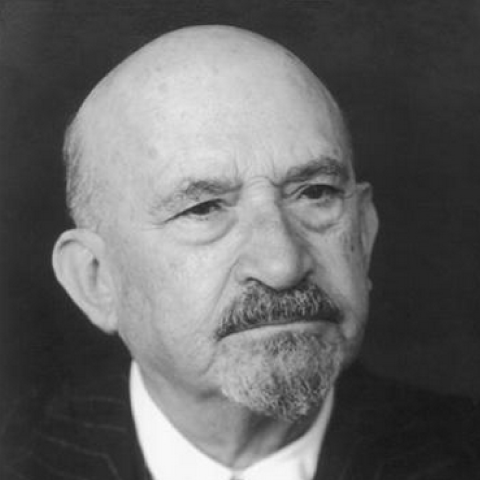
CHAIM WEIZMANN
Chaim Azriel Weizmann was a Zionist leader and Israeli statesman who served as President of the Zionist Organization and later as the first President of Israel. He was elected on 16 February 1949, and served until his death in 1952.
Weizmann was arguably the most influential figure in procuring the Balfour Declaration. While Theodore Herzl was referred to as the “father of political Zionism”, Weizmann was viewed as the one who put the plan into action.
Weizmann convinced the United States government to recognize the newly formed state of Israel.
Weizmann was also a biochemist who developed the acetone–butanol–ethanol fermentation process, which produces acetone through bacterial fermentation. His acetone production method was of great importance in the manufacture of cordite explosive propellants for the British war industry during World War I. He founded the Weizmann Institute of Science in Rehovot, Israel and was instrumental in the establishment of the Hebrew University of Jerusalem.
"Dr. Chaim Weizmann‘s book is the best single fount of information about the twin roots of Communism and Zionism and their convergent purpose. He was present at the birth of Zionism, he became its roving plenipotentiary, he was for forty years the darling of Western courts, presidential offices and cabinet rooms, he became the first president of the Zionist state, and he told the entire tale with astonishing candour. He shows how, in those remote Talmudic communities nearly a hundred years ago, the strategy took shape which in its consequences was to catch up, as in a vortex, all peoples of the West. Americans and Britons, Germans and Frenchmen, Italians, Poles, Scandinavians, Balts, the Balkanic peoples and all others were to be implicated. The lifeblood and treasure of the West were to be spent on the promotion of these two complementary purposes like water from a running tap.
Millions, living and dead, were during two wars involved in their furtherance. Men now being born inherit a share in the final upheavals to which they must inexorably lead. The Jews shared in all that tribulation, in their small proportion to the masses affected. Dr. Weizmann‘s account enables today‘s student to see the beginnings of all this; and now this narrative reaches our own time, which receives daily shape from what then occurred." -
Controversy of Zion By Douglas Reed
TEL AVIV UNIVERSITY
Established in 1956 with the merger of three schools - the Tel Aviv School of Law and Economics, the Institute of Natural Sciences, and the Institute of Jewish Studies - today Tel Aviv University is not only the largest university in Israel but also the biggest Jewish university in the world.
Its campus is located on approximately 220 acres in the Ramat Aviv section of Tel Aviv, the University boasts approximately 2,200 faculty members, over 100 departments and 90 research institutes, including the Jaffee Center for Strategic Studies. Tel Aviv University offers numerous undergraduate, graduate and doctoral programs, including in medicine, law, business administration, education, the arts, and the humanities.
TAU Ventures, a venture-capital fund meant for pre-seeding student and alumni startups coming out of Tel Aviv University, was launched in April 2018. Tel Aviv University was the first Israeli university to offer a venture capital fund, and Ben Gurion University of the Negev followed shortly after. An estimated 25% of Israeli entrepreneurs are graduates of Tel Aviv University, and the university ranks ninth in the world for producing the most venture-capital backed entrepreneurs.
Jaffee Center for Strategic Studies
The Jaffee Center for Strategic Studies, founded in 1977, (as the Center for Strategic Studies) at the initiative of Tel Aviv University. It added the word 'Jaffee' in 1983 in honour of Mr. and Mrs. Mel Jaffee. It was a key Israeli think tank in the 1980s and was also central to the international Invisible College or terrorism think tanks and institutes. It is now known as the Institute for National Security Studies after being absorbed in October 2006.
In its former incarnation it employed a number of people who are now connected to neoconservative networks such as Dore Gold.
According to the account of Edward Herman and Gerry O'Sullivan, the 'most important' institute addressing the issue of terrorism in Israel in the 1980s was 'the Jaffee Center for Strategic Studies, which is affiliated with the University of Tel Aviv. Its links to the government include its head, Major General Aharon Yariv, former director of Israeli intelligence, and editorial board members Brigadier General Aryeh Shalev and Minister of Defense Yitzhak Rabin. Walter Laqueur of CSIS and JINSA is also on the editorial board.'
Herman and O'Sullivan note:
The center sponsors books, monographs, and conferences on a number of subjects, with a strong emphasis on terrorism. It has provided a base for Dr. Ariel Merari, one of Israel's leading analysts of terrorism and coauthor, with Shlomi Elad, of 'The International Dimension of Palestinian Terrorism' (Westview, 1986). [...] The center's 1979 conference on terrorism in Tel Aviv attracted an international group, including Brian Jenkins, J. Bowyer Bell, Yonah Alexander, and Robert Kupperman from the United States, Robert Moss and Paul Wilkinson from Great Britain, and Hans Joseph Horchem from West Germany. There was no departure in the published record of the conference from the Western format and identification of terrorists and victims. Its most interesting feature was the fact that twenty-one of the forty-six participants were state officials.
Moshe Dayan Center for Middle Eastern and African Studies
The Moshe Dayan Center for Middle Eastern and African Studies, part of Tel Aviv University's School of History, is "an interdisciplinary research center devoted to the study of the modern history and contemporary affairs of the Middle East and Africa".
The centre claims that it does not take positions or recommend policies but only "seeks to inform civil society and promote dialogue on the complexities of the ever-changing Middle East" through research, publications and conferences and in this way help to "advance peace through understanding". However, according to the American Friends of Tel Aviv University, the center works "closely with the Israeli government and army".
The centre was ranked in fifteenth place among think tanks in the Middle East and North Africa by the Global Go To Think Tanks Report 2011 produced at the University of Pennsylvania.
The center's esearch focuses on the Arab world (including North Africa), Turkey, and Iran, with an emphasis on modern history and contemporary affairs.
It hosts an annual 'TAU Workshop on Israel and the Middle East' (formerly held at the S. Daniel Abraham Center for Regional and International Studies) which involves "an intensive 12-day academic workshop and travel program that focuses on the history of the Arab-Israeli Conflict and on contemporary issues related to Israel and the broader Middle East".
The centre's Arabic press archive is "one of the largest and most comprehensive collections of modern and contemporary Arabic-language newspapers in the world".
Recent conferences convened by the centre have focused on topics like the resilience of monarchy in the Middle East, the shifting alignments of Islamic movements, the historic role of Jewish scholars in the study of Islam and the politics of identity among Israel’s Arabs.
Maj. Gen. Amos Gilad delivered the 2011 annual Moshe Dayan memorial lecture.
In March 2012 U.S. ambassador to Israel Daniel Shapiro visited the center and gave a speech in which he addressed Israel's relationship with the UN, especially its decision to cut ties with the Human Rights Council (HRC). Shapiro said that the Council 'obsessively focuses' on Israel while neglecting more urgent human rights issues.
History
The Center's origins lie in the Reuven Shiloah Institute, first established in 1959 under the auspices of the Israel Oriental Society and named after Reuven Shiloah, the first director of Mossad, Israel's foreign intelligence agency. In 1965, the Shiloah Institute was incorporated into Tel Aviv University. In 1983, the University established the Moshe Dayan Center, named after the former Israeli Defence Minister and IDF Chief of Staff, Moshe Dayan, who once reportedly said that Israel must 'be like a mad dog, too dangerous to bother.'
Affiliations
- Washington Institute for Near East Policy has long-standing academic ties to the Moshe Dayan Center. Many scholars have been visiting fellows at WINEP.
- Council on Foreign Relations, a New York think tank.
- Royal Institute for International Affairs, also known as Chatham House, a British policy institute
The Blavatnik Interdisciplinary Cyber Research Center
Established in partnership with the Israel National Cyber Directorate, advances awareness and activities in the cyber arena and the challenges that cyber poses to individuals, commercial enterprises and sovereign states worldwide. The center seeks to become an international leader in its field, and to increase academic awareness and efforts to promote cybersecurity. Research at the center addresses a range of issues including: software security, attacks on hardware and software, encryption, network protocols, political and military aspects of cyber security, cybernetic warfare, social aspects of online security and law enforcement in cyberspace.
Yandex Partners With Tel Aviv University to Launch AI Study Program
Russian multinational technology company Yandex N.V., which operates Russia's most popular internet search engine partners with Tel Aviv University on a machine learning education program.
The joint program, known as the Yandex Machine Learning Initiative, will feature courses focused on machine learning, deep learning, natural language processing, computer vision, and robotics. The program is offered through Tel Aviv University’s Blavatnik School of Computer Science as part of the undergraduate computer science program.
Sackler Faculty of Medicine
The Sackler School of Medicine was named for Arthur, Mortimer and Raymond Sackler, owner of Purdue Pharma, who have make substantial profits from their opioid drug OxyContin. The drug is linked to 100,000's of deaths and countless lives destroyed and harmed due to the effects of addiction. The Sackler family have made substantial donations to the school. Each year the school presents the Sackler Prize for a significant contribution to the fields of physics or chemistry.

LEN BLAVATNIK
Blavatnik s a Soviet-born (Odessa,Ukraine) Jewish oligarch. He is the owner of conglomerate company, Access Industries. His family emigrated from the Soviet Union to the United States in 1978, and he received a masters in computer science from Columbia University and an MBA from Harvard Business School in 1989.
Blavatnik made billions as a Kremlin insider. He is a business partner and close friend from childhood of Viktor Vekselberg. They formed the Renova investment vehicle, and then the two joined with Mikhail Fridman's Alfa Group to form the AAR venture. He is also a former business partner of Oleg Deripaska.
He has a British and American passport.
As of January 2018, Blavatnik was the wealthiest man in the United Kingdom, and the 50th wealthiest in the world, with a net worth of US$21.2 billion.
He also has several business ties and connection to Edgar Bronfman Jr.
Len Blavatnik has been a major partner of TAU for many years, exhibiting deep commitment to the advancement of excellence in higher education and research in Israel.
In 2017, Blavatnik was knighted by Queen Elizabeth II in the 2017 Birthday Honours for services to philanthropy.
Blavatnik donated money to Donald Trump's inauguration.

ROMAN ABRAMOVICH
Abramovich is a Russian-Israeli billionaire businessman, investor and politician.
Abramovich is the primary owner of the private investment company Millhouse LLC, and is best known outside Russia as the owner of Chelsea F.C., a Premier League football club.
In 1995, Abramovich and Berezovsky acquired a controlling interest in the giant Soviet oil company Sibneft. Affiliates of Abramovich, with affiliates of Boris Berezovsky, purchased Sibneft for US$100.3 million (the company was worth US$2.7 billion at that time). As of 2000, Sibneft produced around US$3 billion worth of oil annually. Abramovich established several "fly-by-night" firms and together with his friend Boris Berezovsky used them to acquire the stock of Sibneft. As a result, the tycoon managed to pay for the company 25 times less than the market price.[citation needed] Bought for a total of US$200 million, Sibneft is now worth seventy five times as much.
The Times claimed that he was assisted by Badri Patarkatsishvili. This acquisition was under the controversial loans-for-shares programme initiated by President Boris Yeltsin. After Sibneft, Abramovich's next target was the aluminium industry. After privatisation the 'aluminium wars' led to murders of smelting plant managers, metals traders and journalists as groups battled for control of the industry. Abramovich famously emerged as the winner of the aluminium wars. The Times stated that in a BBC investigation into Abramovich's wealth, reporter John Sweeney noted that, after the oligarch (Abramovich) emerged at the top of the trade, the murders stopped.
Abramovich donated $30 million to Tel Aviv University’s Center for Nanoscience and Nanotechnology scheduled to open in 2020.
ISRAELI AEROSPACE INDUSTRIES
IAI is Israel's major aerospace and aviation manufacturer, producing aerial and astronautic systems for both military and civilian usage. It has 16,000 employees as of 2013. IAI is wholly owned by the government of Israel.
IAI designs and builds civil aircraft, drones, fighter aircraft, missile, avionics, and space-based systems.
Although IAI's main focus is aviation and high-tech electronics, it also manufactures military systems for ground and naval forces. Many of these products are specially suited for the Israel Defense Forces (IDF) needs, while others are also marketed to foreign militaries.
Israel Aerospace Industries was founded in 1953 as Bedek Aviation Company under the initiative of Shimon Peres, then director general of the Ministry of Defense, in order to maintain Israel Defense Forces aircraft. The company originally had 70 employees and recruited American born aviation expert Al Schwimmer as the company's founder and first president.
In 1969 IAI acquired North American Rockwell's Jet Commander series of business aircraft. This became the basis for the IAI Westwind line.
In the 1960s, IAI developed the Gabriel anti-ship missile and the Elta Electronics Industries subsidiary developed an inexpensive aircraft radar which would become a successful export item. In the 1970s IAI developed the Dabur class patrol boat.
In the 1970s IAI also entered the Unmanned aerial vehicle (UAV) market with the development of the IAI Scout. In 1984, IAI formed a joint venture with rival Israeli company Tadiran to market both companies' UAV's, the Tadiran Mastiff and the IAI Scout.
By 1980s the original Bedek maintenance business was conducting extensive overhauls on dozens of different aircraft types, working on engines as well as airframes and interiors, IAI could provide more comprehensive refurbishments than even the aircraft manufacturers themselves. The unit had 4,000 employees by the mid-1980s and overhauled a huge range of aircraft, from propeller-driven trainers to airliners; including big civil aviation programs, such as conversion of Boeing 747s to freighters.
By 1989 IAI posted a profit of $11.8 million on sales of $1.28 billion. The company had four divisions—Aircraft, Aviation, Electronics, and Technologies—and 17 factories. IAI was established as a world leader in upgrading aircraft. Planes such as the Vietnam-era McDonnell Douglas F-4 Phantom II were modernized with advanced avionics and weaponry.
In the 1990s IAI entered the space race with the AMOS communications satellites, Ofeq observation satellites and the Shavit space launcher.
In December 1997, the IAI Galaxy, a business jet with an intercontinental range developed as a joint venture Galaxy Aerospace with the Hyatt Corporation, made its first flight and entered service in 2000. In May 2001, General Dynamics' Gulfstream Aerospace bought IAI's Galaxy Aerospace Co. L.P. unit for $330 million, although IAI continues to perform the most of the assembly and development of the jets which are marketed by Gulfstream.
In 2003, Israel Aircraft Industries attempted to enter the VLJ (very light jet) Market by launching the Avocet ProJet, a 6-8 seat high utilization air taxi with a list price almost half the cost of the least expensive business jet available at that time. In early 2006, ProJet development stalled after a major undisclosed US OEM pulled out of the program due to unspecified reasons.
The company was working with the Aviation Technology Group on a military trainer version of the ATG Javelin, a fighter style personal jet. The version being developed would have competed against a large field of jet trainers at a much lower cost of acquisition and maintenance. ATG halted development of the Javelin in 2008 due to a lack of funds.
In March 2004 IAI signed a $1.1 billion contract with India to install three EL/W-2090 AWACS systems on Russian-made Ilyushin Il-76 transports, which are based in part on IAI's earlier EL/M-2075 Phalcon platform which was developed in the 1990s.[15] In the late 2000s IAI developed the follow-on EL/W-2085 system which is installed on heavily modified Gulfstream G550 aircraft and which besides serving in the IAF were also sold to Singapore and Italy.
On 6 November 2006, IAI changed its corporate name from "Israel Aircraft Industries Ltd." to "Israel Aerospace Industries Ltd."; to more accurately reflect the current scope of the firm's business activities, which includes not just aircraft, but also systems, satellites and launchers, as well as maritime and ground systems.
On 13 April 2009, the Moscow Times reported that the Russian Defense Ministry had signed an agreement with Israel Aerospace to purchase $50 million in pilotless drone aircraft. The contract reportedly includes three types of UAVs manufactured by the company.
In January 2012, IAI announced a sale of $1.1 billion of defense systems to an Asian country. The deal has been signed but the company did not name the buyer. It was reported that the sale will include IAI aircraft, missiles and intelligence technologies.
On 4 September 2012, the Gulfstream G280, a new twin-engine business jet built by IAI, received full certification from the Federal Aviation Administration (FAA).
Nozette Espionage
The FBI arrested Stewart Nozette on October 19, 2009, US Attorneys charged him with attempted espionage. Case files allege Nozette's impersonation of colleague's email account to gain access to classified information and transport of USB thumb drives (possibly loaded with classified information) overseas. Court filings reveal Nozette's efforts to reverse AG Eric Holder's imposition of "Special Administrative Measures" that limited his communications, including unmonitored private conversations with his wife. A concurrent FBI fraud investigation investigated Nozette's role as a paid consultant of of Israeli Aircraft Industries.
Nozette sought to sell some of America’s most closely guarded secrets – including information directly concerning satellites classified as Top Secret/SCI – to a person he believed was an agent for a foreign intelligence organization.
On March 23, 2012 Nozette was sentenced to 13 years in prison.

AL SCHWIMMER
Adolph "Al" Schwimmer was born in Brooklyn, New York in 1917. He was the founder and first CEO of Israel Aerospace Industries.
In 1939, Schwimmer began his aerospace career at Lockheed Corporation as an engineer and also received his civilian pilot license. He worked as a TWA flight engineer before being approached by the untouchable Jewish Agency paymaster Nahum "Ned" Bernstein to acquire aircraft for the fledgling state of Israel. The WWII veteran established front companies to acquire war surplus aircraft and military engines and smuggle them to Palestine. Schwimmer was convicted of violating the U.S. Neutrality Act but received no prison time because the judge believed other, much higher smuggling network figures who had not been indicted, were more to blame.
In 1951 at the invitation of David Ben-Gurion, Schwimmer returned to Israel to establish the state-owned military industrial corporation Israel Aircraft Industries. He led the company for 25 years. In the 1980s Schwimmer joined the Reagan administration's covert Iran-Contra operation as a middle man selling U.S. military equipment to Iran in order to finance the Nicaraguan contras. In 2001 President Bill Clinton pardoned Schwimmer after intense lobbying by the son of another convicted smuggler for Israel, Hank Greenspun. According to the book Dangerous Liaison by Leslie and Andrew Cockburn, Greenspun was recruited through Bernstein to assist Schwimmer on his transfer of military equipment to Israel.
Greenspun was also a moneyman for President Carter and allegedly had compromising material on the candidate that was kept in a safe at Watergate office complex.
Schwimmer's partial FBI file required multiple appeals and more than three years to release. It reveals the FBI's dawning understanding about how Israeli use of Americans as both front-organization operatives and to provide cover from the top echelons of America's public and private sector would make effective counter-intelligence almost impossible. "...The Israelis may use fictitious business fronts in carrying out their intelligence and related operations...When such firms are discovered, every effort should be made to determine whether they are legitimate business establishments or fronts for covert Israeli operations, " stated one 1951 report. The report was made as the incredible breadth of the Jewish Agency's smuggling network became evident. Paying off witnesses and greasing politicians became part and parcel of "quashing" investigations into Israeli espionage in America.
The FBI file reveals missed counter-intelligence opportunities. Although an American AIA employee, threatened with death for insufficient loyalty to Israel, tipped off the FBI that another American—Ehud Kadish—was involved in Israeli missile development, not until 2008 would the FBI collar "America's second Jonathan Pollard"—brother Ben-Ami Kadish—for missile espionage against America
ELBIT SYSTEMS
Elbit Systems Ltd. is an Israel-based international defense electronics company engaged in a wide range of programs throughout the world. The company, which includes Elbit Systems and its subsidiaries, operates in the areas of aerospace, land and naval systems, command, control, communications, computers, intelligence surveillance and reconnaissance (C4ISR), unmanned aircraft systems (UAS), advanced electro-optics, electro-optic space systems, electronic warfare suites, signal intelligence (SIGINT) systems, data links and communications systems and radios.
The company also focuses on the upgrading of existing military platforms, developing new technologies for defense, homeland security and commercial aviation applications and providing a range of support services, including training and simulation systems.
In 2016, Elbit Systems had approximately 13,895 employees, the majority of whom are engaged in engineering, mechanics, research and development, and other computing and technical areas.
Elbit Systems was founded in 1966 by Elron Electronic Industries, which combined the existing expertise within the Israel Ministry of Defense-Research Institute in special computer design with Elron's experience in electronic product design, manufacture and management (initially under the name Elbit Computers). Elbit steadily expanded developing and producing logistic-support weapon delivery and navigation systems for most Israeli aircraft, establishing a combat avionics package for the IAI Lavi fighter aircraft, and producing a fire-control system for the Merkava tank.
In 2000, Elbit Systems merged with El-Op (a company controlled by the current Chairman, Michael Federmann),[5] creating the largest non governmental defense electronics company in Israel and increasing Elbit Systems' value which later in 2004 enabled Elron to sell its shares in Elbit Systems for approximately $200 million.[6] Following the merger with El-Op, Michael Federmann became the largest shareholder in the combined group.
Growth by acquisition
Following the merger with El-Op, Michael Federmann and CEO Joseph Ackerman led an aggressive growth by acquisitions strategy.
The company acquired companies, including:
Elisra
Tadiran CommunicationsShiron Satellite Communications
BVR Systems
Assets of Israel Military Industries’ Aircraft Systems Division
Innovative Concepts, Inc.
Mikal Ltd (the company initially purchased 19% of the firm, and later agreed to acquire Mikal's 100% holdings in Soltam Systems and Saymar and the 87.85% portion of ITL held by Mikal, in exchange Mikal's owners received the 19% of Mikal that Elbit had purchased. Elbit subsequently announced a cash tender offer for the 12.15% remainder of ITL held by the public.
Universal Avionics Systems Corporation
Tadiran CommunicationsShiron Satellite Communications
BVR Systems
Assets of Israel Military Industries’ Aircraft Systems Division
Innovative Concepts, Inc.
Mikal Ltd (the company initially purchased 19% of the firm, and later agreed to acquire Mikal's 100% holdings in Soltam Systems and Saymar and the 87.85% portion of ITL held by Mikal, in exchange Mikal's owners received the 19% of Mikal that Elbit had purchased. Elbit subsequently announced a cash tender offer for the 12.15% remainder of ITL held by the public.
Universal Avionics Systems Corporation
Elbit Systems purchased the night vision business of Harris Corp. in America for $350 million
Elbit owns several companies in the United States through its American subsidiary, Elbit Systems of America (ESA):
EFW in Fort Worth, Texas (the EFW facility also houses ESA's home office)
EFW manufactures various components for the F-16, V-22, and Bradley Fighting Vehicle, among other programs. It was initially the electronics manufacturing facility for General Dynamics operations in Fort Worth; when GD sold its aviation business to Lockheed Martin the latter was not interested in the facility which was then sold to Elbit.
IEI in Talladega, Alabama (formerly International Enterprises, Inc.)
Kollsman Inc. in Merrimack, New Hampshire (founded in 1928 by Paul Kollsman, who invented barometers and instrument flight in airplanes)
Kollsman is a subcontractor to Boeing on SBInet, a high-tech security system for the U.S.-Mexico border in conjunction with the United States Department of Homeland Security.
Talla-Com in Tallahassee, Florida
Innovative Concepts, Inc. (ICI) in McLean, Virginia, purchased in November 2008 from Herley Industries
VSI in San Jose, California (a joint venture with Rockwell Collins, formerly known as Vision Systems International; Elbit and Rockwell Collins each own 50%)
UAS Dynamics in Fort Mill, South Carolina (originally a 50–50 joint venture with General Dynamics Armament and Technical Products; on December 1, 2011 Elbit purchased GD's 50% share)
M7 Aerospace in San Antonio, Texas.
West Bank Barrier
Elbit supply surveillance systems for the Israeli West Bank barrier.
US-Mexico Border
Elbit won the contract from U.S. CBP (Custons & Border Protection) in 2014 to install a tech-based system – a combination of towers, sensors, radars, cameras, and communications linked into the company’s TORCH command and control center for 24/7 surveillance capability.
As part of a decade long $360 Million US Border Drones Program, Elbit Systems provided CBP with ground control stations, operational crews and support personnel in addition to the UAVs itself. An independent study found the program to be inefficient in respect to the cost of the program and effectiveness of the technology in comparison to other methods.
F-35 Display Replacement
In early June 2017, Elbit System of America announced a contract from Lockheed Martin to develop a panoramic cockpit display unit to replace the fighter’s current L3 Aviation Products cockpit display. During the Paris Air Show later that month, Harris Corporation said it had a contract from Lockheed Martin to improve the F-35’s data storage, display processing and throughput capabilities.
The TR3 avionics system upgrade is part of the F-35 Block 4 follow-on modernization program; it will be added during the Block 4.2 increment, according to the Pentagon’s Office of the Director for Operational Test and Evaluation
Apache Aviator Integrated Helmets for the US Army
In October 2014, Elbit Systems won a $12.7 million contract for the supply and provision of Apache Aviator Integrated Helmets for the US Army helicopter fleet. The contract would be delivered over a two-year period.
Cyberbit
Cyberbit is a subsidiary of Elbit Systems an Israeli high technology company engaged in a wide range of defence, homeland security and commercial programs.
In 2017, Cyberbit found itself in the centre of a scandal involving a product it sells to government which allows the user to spy illegally on people be it citizens, dissidents, foreigners involving espionage. The capabilities are all possible and been known to be utilised in all those scenarios according to citizenlab.
Learning of the questionable ethics of Cyberbit as a merchant of spyware and cyber arm product and how their products are being utilised is one thing, but there is also nothing legally has occurred and there is no real pressure from the Israeli government to curb the sales of Cyberbit products to governments who’s institutions have violated their own laws and foreign country’s laws. This really highlights the free reign of the high tech sector and there are many possible reason to believe that is no coincidence.
So with that in mind, you wouldn’t be surprised to discover that this same company is involved in providing cyber security products and training to Cyber Security Training Range (CSTR) of Maryland, LLC. CSTR role is to protect US national assets and essential infrastructure.
The training involves cyber war games where cyber-attacks are simulated to mimic real ones on what is called a cyber-range. I’m not an expert on this particular aspect opens up other scenarios and possibilities. It leaves a lot of trust and power in the hands of cyberbit.
So from the training and cyberwar games carried out we can conclude that cyberbit knows all the mechanics and protocols of the cybersecurity system and how it is used. So they can and will design cyber arms and spyware to counter their own systems. Not only because they have to stay ahead of outside hackers, also because Cyberbit have a vested interest in creating new business selling new and updated products.
So the scenario could be described as a cyber-arms race under the umbrella of this corporation.
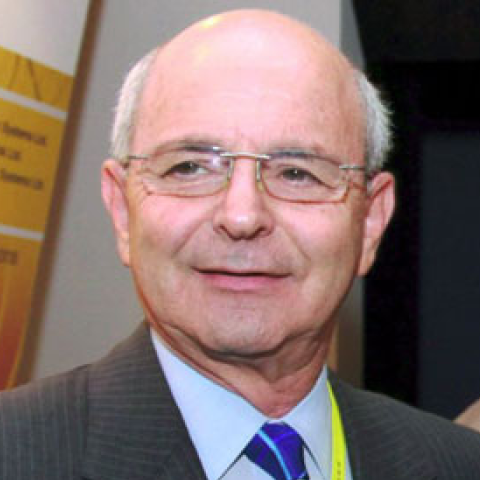
MICHAEL FEDERMANN
CHAIRMAN OF ELBIT SYSTEMS AND DAN HOTELS
Under his leadership Elbit Systems multiplied its size many times and became a major player in the Unmanned Aerial Vehicle market globally as well as in other areas of military defence technology.
He served in the Israel Defense Forces' elite unit Sayeret Matkal where he was a member of Ehud Barak's unit.
Since 2002, Federmann has been the owner of Israeli conglomerate Federmann Enterprises Ltd which was started by his late father and uncle. His cousin Ami Federmann also holds a stake. Federmann chairs the boards of its two biggest publicly traded holdings: defense electronics maker Elbit Systems and luxury hotel operator Dan Hotels Corp.
Federmann joined Elbit when his El-Op company merged with it in 1998. That doubled it in size. Elbit was naturally going to benefit from the global growth of the UAV market however, the 700% growth of Elbit over the following decade was also largely due to Federmann and CEO David Ackerman's leadership of Elbit Systems. They embarked on an ambitious global buyout strategy for the sake of growth. The strategy has made Elbit into a multibillion-dollar multinational.
Dan Hotels
Under the aegis of Federmann the hotel group has continued to grow, thanks to growing tourism and business in the country as well as ongoing expansion of the chain. Dan Hotels began as a boarding house on the Tel Aviv seafront that was purchased by his father and uncle in 1947. Over the following decades it grew to be a national chain. It is now expanding into India. Part of the chain is the iconic King David Hotel in Jerusalem, which since its founding in 1932 until this day hosts heads of state and diplomats on behalf of the Israeli government on their visits to Israel.
In June 2014 he received an honorary MBE in Queen Elisabeth II's Birthday Honours list 2014 - For services to UK/Israel business cooperation and UK prosperity.
Chairman of the Board of Trustees of the Hebrew University of Jerusalem.
Board member of the Weizmann Institute of Science.
NSO GROUP
NSO Group was founded by Israel's Unit 8200 alumni and childhood friends Omri Lavie and Shalev Hulio. NSO Group have developed controversial spyware products that have been sold and utilised by highly dubious figures. Citizen Lab have done deep investigations into NSO Group. Below are links to there findings.
Washington Post journalist Jamal Khashoggi who was a open critic of the Saudi Arabian leadership was allegedly tracked with NSO Group's Pegasus software. Khashoggi was brutally murdered in the Saudi Embassy in Ankara according to New York Times
Regardless of your opinion on oligarch Jeff Bezos and Amazon, there has been a very competitive rivalry that has developed huge government contracts involving cloud databases for the CIA and DoD. Amazon's AWS have won the contract for the CIA cloud database and are favorites to win the DoD contract as well. The Israeli fifth column aren't pleased about this. Safra Catz the Co-CEO of Oracle has been highly involved in a smear campaign against Bezos and Amazon. Catz has key operatives Ezra Cohen-Watnick, Keith Kellogg and Devin Nunes in the US government. She had previously assisted John Bolton in becoming the National Security Adviser. (See Purging of H.R. McMaster infographic).
Fixer Roger Stone, who is a long time friend of Donald Trump and protege of Roy Cohn has also been connected to a sexual entrapment and blackmail attempt of Jeff Bezos. The Zionist alternative media shill outlets Infowars and Breitbart have followed suit on attacks on Bezos over the past few years. Even President Trump has gone after Amazon and Bezos on a number of occasions.
Jeff Bezos owns Washington Post who employed Jamal Khashoggi and published his articles critic of the Saudi Arabian regime. Making Bezos an enemy of the Saudis and Israelis.
NSO Group has also been tied to people associated with Donald Trump. Disgraced former National Secuity Adviser General Michael Flynn's Flynn Intel Group was hired by NSO Group to lobby on their behalf. Flynn has a long history of working with pro-Israeli operatives, co-authoring a book with Michael Ledeen promoting the 'War on Terror' that has benefited Israel and their agenda. He has also promoted the 'Q Anon' disinformation operation.
Another connection is to Blackstone Group, who made a $400m offer to acquire 40% of NSO Group. The offer was withdrawn after much public scrutiny over the ethics of NSO Group exposed by Citizen Lab. Blackstone Group's Chairman Stephen A. Schwarzman is a long-time friend of President Donald Trump and provides outside counsel, and served as chair of President Donald Trump's Strategic and Policy Forum.
In May 2019, an exploit of WhatsApp was alleged to have been developed by NSO. WhatsApp told the Financial Times, which broke the news, that “the attack has all the hallmarks of a private company known to work with governments to deliver spyware that reportedly takes over the functions of mobile phone operating systems.” NSO has denied involvement in selecting or targeting victims, but has not explicitly denied creating the exploit.

OMRI LAVIE
Lavie is a former member of Israel's Unit 8200 and co-founder of NSO Group.
His close ties to the Israeli establishment puts into question his independence especially when you consider how valuable and useful this technology is to Israel and allies and potential allies in the region. It is likely spyware programs developed by NSO Group have been used in negotiating alliances with Saudi Arabia to some degree. The appearance of NSO Group to be operating independently gives the Israeli state plausible deniability while still allowing technology developed in Unit 8200 to be used commercially at a very high price in this newly developing cyber arms industry.
Interestingly Lavie has created a new company, Orchestra which offers solutions to cyber attacks his NSO Group spyware has created. It sounds like an orchestrated (pardon the pun) business model. Classic problem, reaction, solution.

SHALEV HULIO
Hulio is a former member of Unit 8200 and childhood friend of Omri Lavie.
Despite all the evidence that Citizen Lab have published proving the use of NSO Group's Pegasus software by Saudi Arabia to target civilians and the New York Times report on the spyware being used to track Jamal Khashoggi, Hulio claims no NSO Group product was used to spy on Khashoggi.
Yet, he takes full credit for NSO Group products for their alleged role in capturing 'El Chapo' Guzman. Hulio seemingly ignores any use of this technology by people with bad intention and has little concerns over people's privacy and human rights. This irresponsible behavior of turning a blind eye to serious issues for his own personal gain as well as denying illicit use of the technology and NSO Group's role in facilitating it for public relations purposes is a major concern.
HEWLETT-PACKARD
HP Israel has provided services and advanced technology to the Israel Defense Forces, including the administration of the electronic infrastructure of the Israeli Navy. HP Israel, has supplied the Basel system to the Israeli Ministry of Defense, and has taken over its development, installation, and maintenance on the ground. The Basel access and control system is a system of biometric sensors, which has been designed to control the Palestinian citizens. This system is installed in the Israeli military checkpoints, which are on the border with the Gaza Strip and in the occupied West Bank. This system has been financed by the Federal Government of the United States, after signing the memorandum of Wye plantation.
In 2011, the Israeli Ministry of Defense responded to a question that had been asked by Who profits?, in relation to the Basel control system, confirming that HP Israel, was hired by the Israeli Ministry of Defense, to operate and maintain in operation the Basel control system. The Ministry of Defense of Israel indicated that the system had been installed at the following checkpoints in the occupied Palestinian West Bank: Jericho, Bethlehem, Jenin, Nablus, Tulkarem, Hebron, Abu Dis, Tarkumia, and near the door of Efraim.
In 2014, the Israeli Ministry of Defense responded to a question about the freedom of information asked by Who Profits?. The ministry told the media that HP Israel had been hired to keep the Basel bio metric sensor system operational at the Israeli checkpoints, at least until the year 2015.
HP's largest software development center is located in Yehud, Israel. The company also has research laboratories at the Technion.
HP has acquired several Israeli startup companies and did have a Israel CEO for a 10 month period.

LEO APOTHEKER
Former CEO of Hewlett Packard
During an interview with Ynet News, Apotheker explained his decision to study in an Israeli university: "I was raised in a Zionist home, and learned Hebrew even before moving to Israel. I was the head of the Zionist youth movement, and believe that leadership should be attained by setting an example.
During his stint as HP CEO the company lost $30 bn.
INTEL
In 2011, Intel exported goods worth $2.2 billion and made $628 million of reciprocal procurements from Israeli suppliers. Over the past five years, Intel contributed more than $4.1 billion to the development of Israel’s economy as part of the company's Industrial Development Plan. In 2013, Intel's Israeli operations racked up exports totaling $3.8 billion.
As the world leader in its field, Intel Israel's development centers focus on Intel Corporation’s global growth areas of processors, platforms, software and services and can boast of many of Intel’s technological breakthroughs. In 2011, Intel witnessed the unprecedented success of the Sandy Bridge processor. Developed in Haifa and Yakum, it quickly became the fastest selling product in Intel’s history. At the same time, Intel developed the Ivy Bridge processor, the world’s first processor with 22nm technology. Intel also led the development of Cloverview, Intel’s upcoming processor for tablets and smartphones. Moreover, Intel reached mass production of the Cedarview processors for the next generation of netbooks.
In January 2005, Intel Israel unveiled an upgraded version of the Centrino chip set that was conceived at the Haifa development center and features new graphics and audio capabilities, faster processing and greater security features.
Intel invest great amounts of resources in keeping our manufacturing facilities at the forefront of technology and in remaining a preferred manufacturing site for Intel Corporation. In 2011, Fab28 completed its upgrade and reached full production capacity, making microprocessors in 22nm technology to support the Ivy Bridge processor.
As leaders in high-tech innovation, Intel believes that technological and scientific education is essential to keeping Israel economically sound. As a result, Intel directs its involvement and contributions accordingly. In 2011, Intel announced the founding of the Computational Intelligence Institute in Israel to research the future interaction between humans and technology. The institute will focus on machine learning, brain-inspired computation and advanced computer architecture, in the hope these breakthrough technologies will enable engaging future applications. At the beginning of 2012, Intel signed a memorandum with the Ministry of Education in which the company agreed to help with the Ministry’s flagship strategic programs to advance science and technology education.
In 2011, Intel received “The Environmental Protection Minister’s Award for Environmental Excellence”. Presented at an event attended by the President of Israel, the award recognized the tremendous efforts Intel has made in environmental projects. Examples include a system for processing silicon particles that Intel developed for our Jerusalem Die Prep facility and that has become standard throughout Intel Corporation; a photovoltaic solar system, which generates renewable energy, that Intel implemented in Jerusalem; and a wastewater treatment facility in Kiryat Gat that is comprised of 19 distinct systems and allows us to recover 40% of waste water.
Intel Israel today has a number of locations. This dispersion has been as a result of Intel wishing to be at the power centers of Israel’s “silicon wadi” for development purposes and to be in the regional areas that have been dedicated as “National Priority Zones” by the Israeli government, for production. This has had a great socio-economic impact in these outlying areas. The locations are as follows: Haifa (multi-disciplinary development center for software and hardware), Kiryat Gat (manufacturing plant), Petach Tikva (development), Yakum (development) and Jerusalem (manufacturing plant).
Intel's new Core-M processors being unveiled in the second half of 2015 were developed in Israel. The processors were developed in Petah Tikva and will include WiGiG technology that will allow wireless and seamless access between all of your technological devices.
An Israeli developed online avatar platform called Fitterli won the Intel Business Challenge Europe 2014 first prize in September, and continued on to compete in the World Business Challenge finals in California later in 2014. Fitterli is an application that allows users to create a virtual version of themselves, or an "avatar", through a body scan and then use that avatar on clothing websites and other retailers to see how things fit or look on them. This hopes to fix the problem of ordering something online and having to return it because you do not like the look or fit of the product. Intel spokesperson Guy Grimland stated that "The 3D technology offered by Fitterli is the kind of innovation Intel has come to expect from Israel, which has developed technology that has enabled the company to strike out on new and exciting paths".
Intel acquired Israeli sports imaging startup Replay Technologies in early 2016, for a reported $175 million. The two companies have been working together since 2013, and the acquisition was referred to as a “natural next step” by Intel Senior VP Wendell Brooks. Replay Technologies specializes in immersive, multi-dimensional video imaging technologies, allowing the user/viewer to see and experience scenes through wholly comprehensive camera views shot from multiple angles. Technology developed by Replay Technologies has been used in Super Bowl 50, and the 2016 NBA All-Star Weekend.
Intel announced plans to purchase Israeli driverless car-technology firm Mobileye for $15 billion in March 2017. This was not only the largest ever purchase of an Israeli high-tech company, but also the largest ever purchase of a company solely focused on the self-driving sector. Mobileye is best known in the industry for being a leader in collision avoidance and mapping technoligies.
Managing director of the Intel Ingenuity Partner Programme, Roy Ramon, stated about Israel that “this is one culture that you can't get anywhere in the world.”
In February 2018, Intel executives announced plans to invest $5 billion to expand it's chip manufacturing facility in Kiryat Gat. This comes in addition to a $6 billion expansion of the same facility announced in 2014.
Intel announced new 8th generation processors in August 2018 that promised up to twelve times faster connectivity speeds and twice the performance of a processor manufactured five years prior. These new processors were developed and designed at Intel's campus in Haifa, Israel. An official statement from Intel claims that these new processors will offer significant gains for users in office productivity, gaming and content creation.

BRIAN KRZANICH
Former Intel CEO
Speaking in Israel Krzanich said “We think of ourselves as an Israeli company as much as a US company,”
Under Krzanich, Intel invested billions into operations and expansions into Israel as well as acquiring Mobileye for over $15bn.
He traveled to Israel to celebrate Israel's 70th Anniversary. Intel created a special event for the anniversary using drones. Mobileye CEO Prof. Amnon Shashua said, “Intel connected itself to Israel decades ago, during which it has operated and invested heavily in Israel. Today it is taking another step in strengthening this connection through a spectacular show of drones that will showcase historical Israeli symbols.”
MICROSOFT & ISRAEL
Israel is currently home to one of Microsoft's three strategic global research and development centers. The Microsoft Israel center is home to some of the company's most exciting and innovative technologies, and employs over 1,000 Israelis.
The Microsoft-Israel center is comprised of core product efforts and incubations in the areas such as big data and business intelligence, cloud, machine learning and personalization. Microsoft's Israel Research and Development Center was the first Microsoft R&D Center to open outside of the United States.
Relying on its original R&D operation which was founded in 1991 and tapping into Israel's deep technological talent pool and its thriving high-tech community, Microsoft inaugurated in April 2006 the Israel Research & Development Center as a significant expansion of the scope and nature of its technology activities in Israel. The Israel R&D Center is strategically situated in two main locations - in Herzeliya, heartland of Israel's high tech industry and in Haifa, home to many graduates of the Technion, Israel's leading technology university. Both of these locations are now home to many prominent venture capital firms and multinational companies with their own research centers.
Some of the prominent innovations that have come out of Microsoft's Israel R&D center include the disk compression and antivirus components of Microsoft's DOS-6 operating system and a bidirectional Windows operating system and Hebrew Windows developed for Microsoft by Kivun Computers.
Marking Microsoft's fifth Israeli acquisition of 2015, including startups Adallom and Aorato, in November 2015 Microsoft announced the purchase of Israeli cyber-security startup Secure Island for an undisclosed sum. Secure Islands is in the business of data protection, and will continue to provide their services to their existing clients such as Vodafone, Credit Suisse, and UBS.
Speaking via video conference at Microsoft Israel R&D Center’s 2016 Think Next event in Tel Aviv, Microsoft founder Bill Gates stated that Israeli developments in areas like analytics and security were “improving the world.”
General manager of Microsoft Global Accelerators Zack Weisfeld praised Israeli start-ups in October 2016, saying that “at the end of the day, and if you get them to the right place, they're unstoppable.”
Microsoft aqcuired Israeli cyber-security firm Hexadite for for $100 million in May 2017. One month later, in June 2017, Microsoft purchased Israeli cloud analytics & optimization service Cloudyn for between $50 and 70 million.

ASSAF RAPPAPORT
CEO Microsoft Israel R&D
Rappaport is a graduate of Israel's Talpiot program studying Computer Science at the Technion. He is also a fellow of Unit 8200.
He was awarded the 'Intel Award for Excelling Science and Engineering MSc & PhD students' as well as 'Best research in the fields of communication, networks and Internet' from Cisco Systems.
Co-Founder & CEO of Adallom which was created in 2012 by Unit 8200 cyber defense veterans, Adallom is a Software-as-a-Service (SaaS) security pioneer. Adallom evolves the way enterprises secure information in SaaS by monitoring all activity, detecting unauthorized access and protecting users in real time.
Rappaport joined Microsoft after it purchased Adallom. He now oversees 1,000 employees at one of the leading R&D centers in the world for one of the world's biggest corporations.
Rappaport made $25 million from the sale of his 7.9% stake in Adallom to Microsoft.
QUALCOMM & ISRAEL
QualComm — with a market cap in excess of $100 billion — has 157 facilities in dozens of countries around the world, including Israel. Last year, the company celebrated the 20th anniversary of its presence in Israel, where it has developed some of its most innovative technologies.
Among the technologies developed by QualComm Israel are the company’s m2m (machine to machine) cellular platform, which is used to track the location of pets, kids, the elderly, and property, a spokesperson said. It’s part of QualComm’s attempt to create an “Internet of Everything,” where objects are intelligently connected through a combination of advanced wireless networks, modules, sensors and software to enable the real-time exchange of information — with key elements developed in QualComm’s Haifa facility, the company said. Among the products that have resulted from that technology is Tagg, the pet-tracking device.
In addition, Israeli start-up Wilocity, which received a substantial investment from QualComm Ventures, the company’s venture capital group, recently demonstrated multi-gigabit wireless WiGig chipsets, based on chips made by QualComm. The system can transfer high-definition video at distances of up to 40 meters with speeds more than 10 times faster than current average Wi-Fi transmission rates, according to Wilocity CEO Tal Tamir.
QualComm has also acquired several Israeli companies. In 2010, the company bought iSkoot, which develops social media apps for AT&T, Verizon and T-Mobile, among others. In 2012, the company scooped up DesignArt Networks, which develops small cell (femtocell) technology for cellular base stations and wireless backhaul infrastructure, as well as the assets of EPOS, which specialized in digital ultrasound technology.
Among QualComm’s great contributions to mobile technology was development of the CDMA (Code Division Multiple Access) standard, which paved the way for fast 3G and 4G communications. Israeli teams helped to develop the standards for those technologies, Jacobs said.
In the early days of cellphone technology (the mid-1990s), few expected that the mobile revolution would reach the proportions of today. And in recent years, bandwidth — the amount of space on the radio bandwidths dedicated to cellular communications — has become very crowded, because of the proliferation of devices and services that consume so much data. Israel, said Jacobs, is an area where QualComm is developing the technology to solve this data-traffic mire.

IRWIN M. JACOBS
CO-FOUNDER & FORMER CHAIRMAN OF QUALCOMM
In 1985, Jacobs co-found Qualcomm along with Andrew Viterbi, Harvey White, Adelia Coffman, Andrew Cohen, Klein Gilhousen, and Franklin Antonio. QUALCOMM developed the OmniTRACS system was deemed one of the world's most "technologically advanced two-way mobile satellite communications and tracking systems". He pioneered these systems which use the communication bandwidth more efficiently than the older fixed time-sliced TDMA technology. Its Code Division Multiple Access (CDMA) has been adopted as one of two digital standards (the other being GSM) used in the next generation of cellular telephones in North America at the time.
Jacobs announced on March 3, 2009 that he had stepped down as chairman of Qualcomm and that Paul E. Jacobs, his son, had been named to succeed him.
Jacobs and his wife donated $133m to create a state-of-the-art applied science and technology academy — and is jointly run by Cornell University and Technion-Israel Institute of Technology – and called the Joan and Irwin Jacobs Technion-Cornell Innovation Institute (JTCII).
The Joan and Irwin Jacobs Technion-Cornell Innovation Institute serves as a bridge between Israel and the USA and Haifa and New York.
KOOR INDUSTRIES
Koor Industries Ltd. is a high-tech holding company at the heart of the Israeli military-industrial complex. It is the largest industrial enterprise in Israel, accounting for 10% of that nation’s GNP by itself. Koor derives more than 40% of its income from electronics; the remainder of its income is divided almost evenly among chemicals and rubber, ferrous and non-ferrous metals, and food and consumer products. The company is a major Israeli exporter, providing an often financially chaotic country with an important source of income and industrial growth.

CHARLES BRONFMAN
Canadian-American businessman and philanthropist and is a member of the Canadian Jewish Bronfman family. With an estimated net worth of $2 billion (as of 2013), Bronfman was ranked by Forbes as the 14th wealthiest Canadian and 736th in the world.
Bronfman is the former chair of Koor Industries Ltd., which is a high-tech holding company at the heart of the Israeli military-industrial complex. He left the company in 2005.
More information on Charles Bronfman available here
LOCKHEED MARTIN & ISRAEL
Lockheed Martin Corporation is the world's largest defense contractor by sales volume, and in April 2014 it was announced that they would be forming a new technology-based partnership and subsidiary based in Israel. The Israeli subsidiary known as Lockheed Martin Israel Ltd registered with the Israeli Corporations Authority in August 2014 and will primarily be concerned with cyber security issues, information technology, data analytics, and cloud storage. In addition to this collaboration, Lockheed also sells military equipment to Israel including the F-35 Joint Strike fighter jet and the C130J Military Transport Airplane. Lockheed Martin has had an operating presence in Israel for over 20 years.
Lockheed Martin is interested in receiving Israeli Ministry of Defense contracts and taking part in the establishment of the IDF's new technology cluster stationed near Beersheba in Southern Israel. The hope is that this new technology sector will become the "Silicon Valley" of Israel and maybe the entire region. Multiple domestic and international companies are vying for the contracts to build infrastructure for the new technology cluster. According to Lockheed officials, this investment in Israel "demonstrates the corporation's commitment to supporting the Israeli Defense Forces". The company is attempting to expand internationally as a general statement, following defense budget cuts in the United States. Lockheed Martin International has set up subsidiaries and regional offices in Canada, Saudi Arabia, the UAE, Singapore, Australia, Israel, India, Japan and South Korea and employs approximately 115,000 people world wide.
Lockheed Martin strengthened their ties with Israel on October 6, 2014 with the signing of a long-term deal with Israeli Yissum Research Development Company, a subsidiary of Hebrew University in Jerusalem. Yissum Research Development Company was founded in 1964 and is the technology transfer company of Hebrew University, tasked with marketing the ideas, innovation, and technology of the University. The deal will see the two companies sponsor joint research at Hebrew University pertaining to quantum information sciences and material sciences as well. Pursuant to the agreement, Lockheed Martin has been granted the exclusive licenses to purchase any invention or product resulting from the partnership.
Israeli Defense Minister Moshe Ya'alon and US Defense Secretary Chuck Hagel reached an agreement for Israel to purchase a second squadron of Lockheed Martin F-35 fighter jets on October 28, 2014. Israel had previously purchased 19 of the aircraft for $2.75 billion, the first of which were delivered in 2016. The second squadron of planes purchased on October 2014 will include at least 20 planes. The first planes of the second squadron order are going the be delivered starting in 2019. Israeli Aircraft Industries formed a deal earlier in 2014 with Lockheed Martin to produce 811 pairs of aircraft wings in Israel, and this production began in November 2014. The first two F-35's landed in Israel on December 13, 2016, where the American pilots were greeted by Israeli Prime Minister Benjamin Netanyahu and U.S. Secretary of Defense Ashton B. Carter. Three more of the planes arrived in Israel on April 24, 2017.
Speaking in May 2017 at an annual dinner event in Tel Aviv for the Fisher Institute for Air and Space Strategic Studies, retired U.S. Air Force Gen. Gary North, vice president for customer requirements at Lockheed Martin Aeronautics, stated there’s a part of Israel in every F-35 that’s ever been built.
Lockheed Martin along with several partners invest $25m in Israeli cyber-security start-up Cybereason, Lockheed checked out Cybereason’s protection system, and liked it enough to recommend it to others, “after they compared our solution against a dozen others from the top industry players,” CEO Lior Div . The series B funding round was led by Spark Capital, with participation from existing investor CRV.
Cyberreason CEO Lior Div is a graduate of the IDF’s 8200 Intelligence Corps – where he was commander of a cyber security team.
BLACK CUBE
Black Cube is a private intelligence agency based in London, Paris and Tel Aviv,[1] and is the trading name of BC Strategy Ltd.[2] The company was founded in 2010 by former Israeli intelligence officers Dan Zorella and Avi Yanus. Its employees include former members of Israeli intelligence units, including Aman, Mossad and Shin Bet, as well as legal and financial experts.
Black Cube's tactics have resulted in a number of international controversies. In Romania, two of its employees (David Geclowicz and Ron Weiner) were convicted of criminal charges involving harassment and hacking.
Harvey Weinstein hired Black Cube in order to stop the publication of the abuse allegations against him. Using false identities, private investigators from Black Cube tracked and met journalists and actresses, in particular Rose McGowan, who later publicly accused Weinstein of rape. Over the course of a year, Weinstein had Black Cube and other agencies "target, or collect information on, dozens of individuals, and compile psychological profiles that sometimes focused on their personal or sexual histories." As published in the Daily mail, the purpose of the contract with Black Cube was to prove Weinstein was the subject of a negative campaign, and to find out who was behind it.
In November 2017, Black Cube set up a fake recruitment firm, and flew an employee and a former employee of a hedge fund company to London for fake job interviews, in order to gain proprietary information about the hedge fund, according to The New York Times. Black Cube refused to comment. In New York State, private investigators are required to be licensed, but the Times couldn't find a record of a license for Black Cube or B.C. Strategy.
In May 2018, Black Cube was accused of using false identities to seek damaging information about former Obama administration officials and help the Trump administration undermine the Iran nuclear deal. Black Cube has responded by stating that it has no relation to the Trump administration, to Trump aides or to the Iran nuclear deal. In August 2018, The New Yorker connected Black Cube's research to a memo which circulated in the Trump White House in early 2017 and alleged that former Obama officials were conspiring with reporters "to undermine President Trump's foreign policy" to save Obamacare and the Iran deal. In October 2018, Haaretz newspaper revealed that Black Cube's activities were aimed at tracking transfers of Iranian funds and assets in order to forfeiture them, following US court rulings against Iran in favor of victims of terror attacks. Furthermore, it was published that the goal of the intelligence gathering was tracing unknown Iranian assets and revealing Obama’s administration collaboration with Iran, in violation of U.S or international law, in order to find other possible parties to sue such as banks.
On April 5, 2019 the Senate Intelligence Committee sent a letter to Walter Soriano the owner of USG Security Limited based in Britain and Israel for his communication with Paul Manafort, Michael Flynn, Psy-Group, Wikistrat, and Black Cube, Orbis Business Intelligence (a firm co-founded by Christopher Steele).

MEIR DAGAN
FORMER DIRECTOR OF MOSSAD
Meir Huberman (later Dagan) was a Israel Defense Forces Major General and Director of the Mossad. He was born on a train on the outskirts of Kherson, between the Soviet Union and Poland during World War II to Polish Jewish parents who were fleeing Poland for the Soviet Union.
The Mossad under Meir Dagan has undergone a revolution in terms of organization, intelligence and operations." Under Dagan's watch, Mossad tripled its recruitment efforts, launching a website where people can apply to join. Reportedly, much of its annual budget of $350 million was diverted from traditional intelligence gathering and analysis to field operations and "special tasks".
Dagan was on the Honorary President of the International Advisory Board of Black Cube.

EFRAIM HALEVY
FORMER DIRECTOR OF MOSSAD
He was the ninth director of Mossad and the 4th head of the Israeli National Security Council.
Halevy was born in London to an established Orthodox Jewish family. He emigrated to Israel in 1948. He attended Ma'aleh, a religious high school in Jerusalem, and later, graduated (with commendation) in law from the Hebrew University of Jerusalem.
On January 27, 2007 an interview of his was published in Portugal, in which he stated "We are in the midst of a Third World War" with radical Islam, and predicted that it will take at least 25 years for the West to win. Israeli PM Netanyahu has a book with a similar narrative called; The War on Terror - How the West Can Win.
Halevy is on the Advisory Board of Black Cube.
In 2013, Halevy became chairman of the Shorashim program, a program that helps immigrants to Israel from the former Soviet Union verify their Jewish ancestry.

YOHANAN DANINO
FORMER ISRAELI POLICE COMMISSIONER
Former Israeli Police Commissioner. Danino served as Chairman of Migdal Insurance Group.
Hled the Unit of International Crime Investigations and the police's Southern Command. He was also involved in high-profile investigations against top politicians, including Ehud Olmert, Avraham Hirschson and Avigdor Lieberman.
He is a member of Black Cube's Advisory Board.
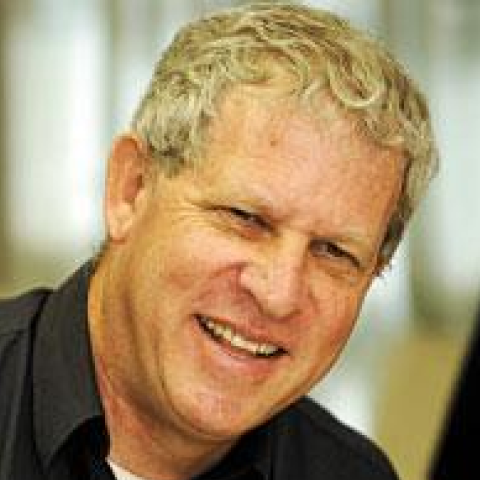
GIORA EILAND
Eiland is a retired Major General of Israel Defense Forces. He is a former head of the Israeli National Security Council. After his retirement from the public sector, he was a senior research associate at the Institute for National Security Studies (INSS).
Eiland is a frequent commentator and contributor on international security matters on local and foreign media.
In 2007, he founded a private consulting company, giving advice to governments and companies in the defense industry of Israel, as well as to Israel Military Industries. The company also provides services in various settings to foreign governments, multinational corporations, and organizations.
Advisory Board member of Black Cube.

DAN ZORELLA
BLACK CUBE CO-FOUNDER
In late 2015, Black Cube’s director Dan Zorella met DRC's fPresident Joseph Kabila in the first of several meetings that gave birth to Operation Coltan, a project to gather intelligence on the then-president’s many detractors, Uvda reported.
“Kabila wanted to know everything that was going on at opposition meetings,” an anonymous former Black Cube employee told Uvda. “He wanted to know who was there and who criticized him. He wanted to know if any of his relatives betrayed him in those meetings – and there were indeed such traitors.”
As part of Operation Coltan, Black Cube – which is mainly composed of former members of Israel’s military and intelligence services – even went so far as to make an entire floor of a Kinshasa hotel the headquarters of their unofficial intelligence operations.
In response to these allegations, Black Cube filed a defamation lawsuit in a British court against Uvda and its journalist Ilana Dayan, demanding £15 million (€16.8 million) in damages.

DAVID GECLOWICZ
Geclowicz was one of two Israelis working for Black Cube who were arrested in the Eastern European nation on allegations of spying on a senior Romanian official.
According to previous Romanian media reports, Geclowicz, along with fellow Black Cube employee Ron Weiner, were accused of hacking into three email accounts of people close to Kovesi.
Following the arrest of the two, a diplomatic official in Jerusalem underlined that the two were private citizens acting in a private capacity. Giving the Israeli state plausible deniability in regards to any state sponsored interference into Romanian politics.
Both men were found guilty and given a 2 year suspended sentence.

RON WEINER
Under the direction of his employers Dan Zorella and Avi Yanis, along with his colleague David Geclowicz, Weiner carried out "harassment and digital crimes, such as making multiple threatening telephone calls meant to inspire fear, as well as phishing attacks meant to steal login credentials and, later on, to compromise e-mail accounts. These activities were followed by the violation of the secret of correspondence via the unlawful copying and transfer of these accounts’ content. The objective of the group’s criminal activity was to compromise the image of the DNA chief prosecutor in Romania by trying to find “activities of corruption.””
Black Cube: How did an Israeli intelligence agency land contracts worth £1.5 million in Romania?PSY-GROUP
Psy-Group is a former Israeli private intelligence agency which was owned and operated by Joel Zamel from Petah Tikva, which closed after revelations that it was under investigation by Special Counsel Robert Mueller. The company had conducted both online perception management, social media influencing/manipulation campaigns, opposition research honey traps and clandestine on-the-ground activities for clients. Royi Burstien, a former lieutenant colonel in the Israeli army, headed an intelligence unit under Israel’s government before starting Psy-Group and acting as the vice-president of business development.
Psy-Group structure was multilayered with a bank account in Cyprus under a company called IOCO, which was owned or partly owned at one point by British Virgin Islands-based Protexer Limited and Cornell Enterprises SA, which in turn was managed by Zurich-based Salix Services AG. Ownership of IOCO would change annually. Protexer subsidiary MGTM Financial Services Limited is owned by Metropol Group in Moscow and run by Mikhail Slipenchuk. Psy-Group was operating under the name Invop Ltd., which was founded on December 22, 2014. Most of the Israeli-based employees came from the same school Joel Zamel attended: the Interdisciplinary Center, Herzliya. Among the employees was Eitan Charnoff, a former IDF commander of the Social Media Productions Desk who ran the iVote Israel 2016 get-out-the-vote campaign for Americans in Israel. Israeli-Australian Paul Vesely has claimed to one of the creators of Psy-Group.
The work of Psy-Group was international and included services to Russian businessmen Oleg V. Deripaska and Dmitry Rybolovlev, Saudi General Ahmed al-Assiri, and President Ali Bongo Ondimba of Gabon. They sought Trump as a client in 2016. Eventually being used by the Trump campaign via Cambridge Analytica.
Psy-Group and Black Cube made approaches to the Israeli Ministry of Strategic Affairs, offering their services against the Boycott, Divestment and Sanctions movement.
Scott Mortman managed Psy-Group’s American clients, he was previously an advisor to Prime Minister’s Office in Israel and currently works for Greenberg Traurig LLP (where Marc L. Mukasey and Rudy Giuliani have also been with, both with close ties to Donald Trump). Marc Mukasey just happens to be Joel Zamel's lawyer, when asked if anything came of Zamel's Trump Tower meeting Mukasey “Not only are you treading over ground that has been well traversed by others to no avail, but your facts are also wrong. You’re chasing ghosts.”
According to Bloomberg Psy-Group pitched its services to super-PACs and other entities during the 2016 election, those services "included infiltrating target audiences with elaborately crafted social-media personas and spreading misleading information through websites meant to mimic news portals." To create disinformation and propaganda through fake news entities. Psy-Group prepared a document that outlined how fake news had helped Trump during the election showing North Carolina as a case study in a state that was moved by social media manipulation to "poison the well" create "fake news" and "buzz".
According to Republican party insiders, in 2016 Rick Gates then deputy chairman of the Trump campaign, reportedly sought Psy-Group's assistance in a scheme referred to as "Project Rome" from George Birnbaum. Shortly after Psy-Group hired Covington & Burling, a Washington-based law firm, to conduct a legal review of "Project Rome". The project reportedly included multiple efforts aimed at assisting the Donald Trump campaign, ranging from opposition research to generation of fake online personas. Joel Zamel met Eric Trump later in 2016 but it is unclear if the Trump campaign ever secured Psy-Group's services. The Wall Street Journal published Psy-Group propotioal material purportedly from the meeting. The interaction between the Trump campaign and Psy-Group became part of the investigation into Russian interference in the 2016 US presidential elections. Mueller also investigated money flows to Psy-group through Cyprus. The FBI investigation into contacts between Joel Zamel and Trump campaign contacts has continued beyond the closure of Mueller's Special Counsel investigation.
The New York Times reported on May 19, 2018, that Donald Trump Jr. met with United Arab Emirates and Saudi intermediary George Nader, Blackwater founder Erik Prince, and Joel Zamel in Trump Tower on August 3, 2016. Nader reportedly told Trump Jr. the crown princes of Saudi Arabia and the UAE were eager to help his father win the election, and Zamel pitched a social media manipulation campaign. Trump Jr. reportedly responded favorably and Nader subsequently had frequent meetings with Steve Bannon, Michael Flynn and Jared Kushner. The Times reported that Prince had arranged the August 2016 meeting; Prince had stated in his November 30, 2017, testimony to the House Intelligence Committee that he had no formal communications or contact, nor any unofficial role, with the Trump campaign. After Mr. Trump was elected, Mr. Nader paid Mr. Zamel up to $2 million.
In February 2018 FBI agents assisting Mueller traveled to Israel to interview employees of Psy-Group, the company whose founder, Joel Zamel, pitched psychological operations to the Trump campaign in 2016. Mueller also subpoenas records for payments made to PSY Group's bank account in Cyprus.
On April 5, 2019 the Senate Intelligence Committee sends letter to Walter Soriano the owner of USG Security Limited based in Britain and Israel for his communication with Paul Manafort, Michael Flynn, Psy-Group, Wikistrat, and Black Cube, Orbis Business Intelligence (a firm co-founded by Christopher Steele).
In 2016 Psy-Group was hired to conduct a covert campaign to maintain Parmod Kumar on the board of Tulare Regional Medical Center, a hospital in Tulare, California. The campaign failed and Kumar, along with hospital physician Yorai Benzeevi, were charged in 2018 for an alleged scheme to defraud and embezzle from the hospital.
In February, 2016, Psy-Group started a campaign against B.D.S. activists on U.S. college campuses known as Project Butterfly. Psy-Group collected any "derogatory information" on activists from social media, and from HUMINT sources. (Mossad is not allowed to spy on American citizens, but this does not apply to private groups like Psy-Group, which used ex−Mossad operatives.)
Psy-Group operated a now-defunct website, outlawbds.com, which published information about B.D.S. activists and leaders. People working for "Project Butterfly" included Yaakov Amidror and Ram Ben-Barak. Benjamin Netanyahu, also became an adviser to Psy-Group for the project.
"Project Butterfly" showed particular interest in people connected with American Muslims for Palestine, including its founder, Hatem Bazian.
Canadian hedge fund West Face Capital Inc alleged in court that a rival employed Psy-Group and BlackCube to conduct a sting operation and defamation campaign against it. According to the complaint, Psy-Group — whose operatives in the Canadian project allegedly included former Israeli television journalist Emmanuel Rosen — worked in tandem with Black Cube, publishing defamatory articles and social media posts about West Face and using sophisticated masking techniques to hide their tracks. West Face learned of Black Cube and Psy-Group’s activities when its employees recognized the image of Stella Penn Pechanac in news reports about rape and harassment accusations against Hollywood mogul Harvey Weinstein. Pechanac was a Black Cube employee who reportedly posed as a woman’s rights activist and who befriended actress Rose McGowan in a bid to gather intelligence on behalf of Weinstein. Employees of West Face recognized Pechanac as the same woman who had reached out to them. The judge in the case Frank Newbould was allegedly targeted. Mr. Rosen is alleged to have worked with Brooklyn-based public relations professional Virginia Jamieson in order to plant “highly negative media coverage” of Mr. Newbould. West Face said the campaign included defamatory press releases, online blog posts, tweets, and videos against West Face and its executives, using information gathered or manufactured by the Israeli companies and Mr. Rosen, using aliases including “Samantha Beth,” “Alex Walker,” “Jordan Brown,” and “Judge Frank Newbould.”
In January 2017 Zamel met with Ahmed al-Assiri who implicated in the assassination of Jamal Khashoggi and Trump adviser Michael Flynn in regard to Iran. The talk regarded regime change in Iran and were also attended by Steve Bannon and Lebanese-American businessman and convicted pedophile George Nader, a representative of the United Arab Emirates.

JOEL ZAMEL
PSY-GROUP CEO
The shadowy CEO of Psy Group, Joel Zamel, met with the Trump representatives in August 2016 to pitch his social media strategy to the campaign. The Wall Street Journal and New York Times reported that convicted pedophile Nader paid Zamel a fee of up to $2 million after Trump was elected, allegedly for an unrelated venture in which a different Zamel-connected company created a presentation demonstrating the impact of social media campaigns on Trump’s victory.
Zamel signed a memorandum of understanding for Psy-Group with Cambridge Analytica on Dec. 14, 2016. Alexander Nix the CEO of Cambridge Analytica described entrapping political opponents with bribes and sexual entrapment on a Channel 4 expose saying "We use some Israeli companies ... Very effective in intelligence gathering.” The Wall Street Journal confirmed that it was referring to Psy-Group
Zamel is also the founder of Wikistrat Inc., a geostrategic analysis and business consultancy. Wikistrat was founded in Israel in 2010 and is now based in Washington, D. C. It bills itself as “the world’s first crowdsourced consultancy. We leverage a worldwide community of several hundred strategic thinkers to run simulations of likely international events and unfolding global trends, wargame future conflict or crisis scenarios, and conduct strategic planning exercises.”
Neoconservative Elliott Abrams is a board member of the company.
CARBYNE
Carbyne is a Public Safety Technology company that has developed a call handling ecosystem, which delivers advanced IP-enabled communication features and caller solutions. Their end-to-end digitized NG911 ecosystem brings all available data sources for emergency services into one response system. In 2015, the company offered services through an app "C-Now".
It is believed that this app or something similar is being used by Chinese authorities as part of an aggressive surveillance campaign against the Uighur population.
ORACLE & ISRAEL
Oracle invest heavily into Israeli startups as opposed to investing in the United States where the company was founded and largest customer base is. The Oracle Startup Cloud Accelerator program in Tel Aviv. Oracle’s Startup Cloud Accelerator provides enriching, collaborative partnerships to enable next-generation growth and drive cloud-based innovation for startups.
In 2007, Oracle opened their Israel R&D center in Petah Tikva. The center is based on the technology and personnel of start-up Demantra, which Oracle acquired in May 2006 for $41 million.
The R&D center will supply Oracle with Demantra’s demand forecasting applications. Oracle Demantra VP development Bart Feldman said that the center would integrate Demantra’s products with Oracle CRM applications acquired from PeopleSoft and ERP applications acquired from Siebel Systems.
Oracle Israel managing director Moshe Horev said that the company would invest $2-3 million in at least eight other Israeli companies in 2007.
In 2010, Oracle purchased Israeli startup Convergin, which makes software that lets telcos deliver services across multiple networks and platforms. Telcos have historically used intelligent networks (IN) to deliver service. Convergin's service broker technology allows them to continue serving customers while phasing in next-generation IP (Internet protocol) platforms,
In 2016, the company had acquired Israeli start-ups Crosswise for $50 million and Ravello Systems for $500 million.
In 2017 Oracle selected five Israeli start-ups for its accelerator program, providing mentoring and technical support.
In 2018, Oracle announced that it has signed an agreement to acquire Iridize, a leading enterprise platform for personalized and contextual user onboarding and training for cloud applications.
Oracle also acquired DataFox, a developer of ‘predictive intelligence as a service’ across millions of company records.

SAFRA CATZ
ORACLE CO-CEO
Catz is the Israeli born Co-CEO of Oracle. She was part of Trump’s transition team and shares a good relationship with President Trump. She was also on the shortlist of people under consideration for National Security Adviser to replace H. R. McMaster. The position was taken by John Bolton, something that Catz helped to manufacture - Catz was the source of claims that McMaster called Trump a ‘dope’ and an ‘idiot’ at a private dinner. These rumors were printed in the press and they were maliciously planted by Catz who sought to have McMaster's removed as he fired Oracle ally Ezra Cohen-Watnick. Catz hired Cohen-Watnick after he was fired by McMaster.
Catz has had several meetings with President Trump discussing issues involving Amazon and government contracts with the goal of benefiting Oracle. Trump has publicly attacked Amazon in response.
Along with other senior personnel at Oracle, she personally financed Devin Nunes’ campaign weeks after Cohen-Watnick joined Oracle while the #ReleaseTheMemo meme and narrative was playing out.
In a bitter rivalry with Amazon over government contracts Oracle, who have hired ex-National Security staff and has a Oracle adviser, Keith Kellogg serving on the National Security Council - accused Amazon of offering jobs to people involved in the decision process over a $10 billion JEDI contract.
The long history of unfounded smears associated with Catz's reign as Co-CEO do not present the company in a good light.
NUMEC
Nuclear Materials and Equipment Corporation (NUMEC) was a U.S. nuclear materials processing facility that began receiving a steady stream of government contracts to produce fuel for the Navy's growing fleet of nuclear-powered vessels.
NUMEC’s start-up capital was organized by David Lowenthal, a Jewish Zionist American citizen who had joined the Haganah and fought for Israel during its 1948 war for independence alongside Israel’s first head of Intelligence, Meir Amit, and first Prime Minister, David Ben-Gurion.[12] According to FBI files, Lowenthal travelled "to Israel on the average of approximately once per month.”
Lowenthal more than likely knew Ezer Weizman considering Weizman was the commander of the Negev Air Squadron for the Haganah during the 1948 Arab–Israeli War. Moshe Dayan was also a high ranking official in Haganah at the time. These known (Amit and Ben-Gurion) and likely (Weizman and Dayan) connections were a very probable back channel from the U.S. nuclear program to the top of Israeli intelligence and government. The frequency of Lowenthal’s visits to Israel and the sensitivity of the programs he worked on point to him being Mossad (Israeli Intelligence).
“Many members of NUMEC's venture capital network and board of directors were dedicated Zionists who, like Zalman Mordecai Shapiro, held leadership positions in the Zionist Organization of America – "an American membership organization founded in 1896 dedicated to the creation of a Jewish state in Palestine," according to Grant Smith’s book, Divert!: NUMEC, Zalman Shapiro and the diversion of US weapons grade uranium into the Israeli nuclear weapons program.
“Zalman Shapiro, formerly of Pittsburgh's Squirrel Hill neighborhood, told the Tribune-Review in exclusive interviews before his death at 96 in July, that he and his company, the Nuclear Materials and Equipment Corp. (NUMEC) of Apollo, provided Israel with batteries powered by radioactive strontium 90.
As a result, the Israelis could listen in on their enemies' radio transmissions, garnering information on their plans and troop movements and giving the Israeli army a distinct tactical advantage”[1] in the Six-Day War. Ezer Weizman utilized the strontium 90 batteries to gather the intelligence to plan and carry out Israel’s early morning attacks that destroyed 90% of Egypt’s Air Force.
Strontium 90 batteries “were revolutionary in the 1960s because of their exceptionally long life and ability to operate in darkness, in extreme temperatures and under water. …
The nuclear batteries, known as radioisotope thermoelectric generators (RTGs), still are used in equipment that has to operate in remote and hostile environments, most notably powering NASA's Voyager 1 and 2 space probes, which were launched 40 years ago and are still working, according to Stephen Johnson, director of Idaho National Laboratory Space Nuclear Power & Isotope Technologies.”
“Between 1957 and 1967, NUMEC received 22 tons (44,000 lbs) of HEU-235. A 2001 Department of Energy audit revealed that NUMEC lost at least 593 pounds of HEU - about 2.0 percent of what it received - before 1968.” That is 10 times more than the average loses by other companies.
“Carl Duckett, former deputy of the CIA’s Directorate of Science and Technology, claimed the agency came to the conclusion by 1968 that “NUMEC material had been diverted by the Israelis and used in fabricating weapons.” CIA Tel Aviv station chief John Hadden claimed that NUMEC was “an Israeli operation from the beginning.”’
“In June 1978 Department of Energy investigators told former Atomic Energy Commissioner (AEC) Glenn T. Seaborg that traces of Portsmouth U-235 - the government-owned material primarily delivered to NUMEC for processing into fuel - had been picked up in Israel.”
Back in “1968 NUMEC invited and received Israel's elite nuclear weapons development officials and its top spy under the cover of being "thermo electric generator specialists." They included Avraham Hermoni (technical director of Israel's nuclear bomb project), Ephraim Biegun (head of the Israeli technical department of Israel's Secret Service from 1960-70) and Rafael Eitan (long-time Mossad and LAKAM operative who later directed spy Jonathan Pollard's spy program against the U.S.).”

ZALMAN SHAPIRO
FOUNDER OF NUMEC
Shapiro was an American chemist and inventor. He received 15 patents, including a 2009 patent on a process to make commercial production of diamonds cheaper,[1] and played a key role in the development of the reactor that powered the world's first nuclear powered submarine, the Nautilus.
Shapiro was a long-time Zionist, he was formerly the president of the Pittsburgh chapter of the Zionist Organization of America.
He had business interests and contacts among high government officials in Israel, including a contract to build nuclear-powered generators for Israel.
Oscar Gray, once vice president at NUMEC and now a retired professor emeritus at the University of Maryland, confirmed NUMEC made the batteries for Israel but said NUMEC wasn't told their real purpose.
The Israelis' “explanation was for weather data. It was to power long-usage monitors out in the desert for rainfall.”
However, Gray said he and others at NUMEC “suspected that it was not weather data but, rather, it was the powering of apparatus for phone tapping,” adding, “but they never admitted that to us.”
Shapiro told the Tribune-Review that he extended nuclear battery technology to Israel for even more projects but declined to provide details on many, worried the projects likely are still classified.
Unfortunately, Shapiro took those details to the grave. He did however acknowledge their existence.
COMVERSE (VERINT) SPYING
In 1994, during the Clinton administration, a new law called Communications Assistance for Law Enforcement Act (CALEA) was passed. The public was told that CALEA would increase public safety by providing new tools for the FBI and CIA. Ironically, they claimed that CALEA would help to prevent future terror attacks like the 1993 World Trade Center bombing. In reality, it may have helped assist in the events that occurred on September 11, 2001.
The key to CALEA is centralizing and expediting the business of wiretapping, making it easier for law enforcement to eavesdrop on communications. This allowed US law-enforcement officials who wished to wiretap someone to contact one central department that oversees all wiretapping. With a centralized system, just one company provides software for the entire system. “Comverse Infosys, a subsidiary of an Israeli run private telecommunications firm with offices throughout the US provides wiretapping equipment for law enforcement." (Fox News)
Every time you make a call it passes through the nation's elaborate telecommunications network run by the phone company's custom computers and software made by companies like Comverse, the parent company of Comverse Infosys. All company computers are tied into one network in order to intercept, record and store the wiretapped calls, and at the same time transmit them to investigators. The software manufacturers have continued access to the computers, so they can service them and keep them free of glitches. This very process was authorized by the 1994 Communications Assistance for Law Enforcement Act (CALEA). I'm sure a few alarm bells are ringing.
Senior government officials told Fox News in December 2001 that "while CALEA made wiretapping easier, it led to a system that is seriously vulnerable to compromise and may have undermined the whole wiretapping system." The complaint is that the wiretap computer programs made by Comverse Infosys had a built in back door, making it possible for wiretaps to be easily intercepted by unauthorized parties, like Israel’s intelligence agency Mossad.
Now you may think that this is just a coincidence. Well, maybe if you don’t know about the history and networks behind the Iran-Contra affair, Israeli spy rings and the history of the version of PROMIS software with a backdoor installed by Mossad to gain direct access to US governmental departments’ computer systems. By the way, the PROMIS version with the Mossad backdoor predates the adoption of Comverse Infosys software used for wiretapping. The last company you should purchase wiretapping software from, if you remotely cared about the security of the United States, would be an Israeli one.
It was known at the time of contract that Comverse worked closely with the Israeli government. Under special programs, Comverse received reimbursements for up to fifty percent of its research and development costs by the Israeli Ministry of Industry and Trade. There should have been alarm bells ringing in the mind of any competent intelligence official. Yet we didn't see any intelligence officials warn the public of this particular security threat. We could conclude that the people occupying positions in the intelligence agencies aren't interested in bringing public security concerns to light, or maybe they’re afraid. Maybe both.
Carl Cameron of Fox News reported that investigators within the DEA, IMS and FBI had all told Fox News that 'to pursue or even suggest Israeli spying through Comverse is considered career suicide.' Cameron also stated that 'while various FBI inquiries into Comverse have been conducted over the years, they've been halted before the actual equipment has ever been thoroughly tested for leaks. A 1999 FCC document indicates several government agencies expressed deep concerns that too many unauthorized non law enforcement personnel can access the wiretap system. And the FBI's own nondescript office in Chantilly, Virginia that actually oversees the CALEA wiretapping program is among the most agitated about the threat. But there is a bitter turf war internally at the FBI. It is the FBI's office in Quantico, Virginia that has jurisdiction over awarding contracts and buying intercept equipment, and for years they've thrown much of the business to Comverse.'
Cameron also reported that a handful of former US law enforcement officials involved in awarding Comverse government contracts now work for the company. Numerous sources admit some of these individuals were asked to leave government service under what knowledgeable sources called "troublesome circumstances".' The same individuals 'remain under administrative review within the Justice Department.'
US counterterrorism investigators into the September 11, 2001 attacks said ‘that on a number of cases suspects that they had sought to wiretap and surveil immediately changed their telecommunications processes. They started acting much differently as soon as those supposedly secret wiretaps went into place.' Clearly an indication that those individuals the counterterrorism investigators sought to wiretap were tipped off by someone, likely Israeli intelligence.
In 2007 a former commander of the highly secret Unit 8200 told Forbes
that the technology of Comverse (i.e. the company that owns Verint) is based on Unit 8200 technology.

KOBI ALEXANDER
FORMER CEO OF COMVERSE
Former Comverse CEO Jacob 'Kobi' Alexander is former Israeli intelligence officer. He is also a convicted criminal. Not being content enough with making millions from US government contracts Comverse received from the FBI. Alexander's greed and corruption got the best of him when he overreached, setting up a stock options scheme that he and a couple of his executive friends used as a "secret slush fund.”
The FBI uncovered the scheme and filed charges against Alexander for fraud related to stock options. According to the New York Times 'in the last two weeks of July ‘2006', just before charges were filed, Mr. Alexander wired about $57 million from accounts in the United States to an account in Israel,’ where Alexander also has citizenship. It looks as if Alexander may well have tipped himself off thanks to Comverse’s backdoor technology.
The ever so shifty Alexander had a calculated plan to evade justice and ride off into the sunset, fleeing to Namibia where no extradition agreements are in place with the United States. Luckily, Federal prosecutors froze the remaining $46 million in the US accounts.
According to court testimony of an FBI prosecutor reported by Haaretz on 3rd October 2006, Alexander offered a $2 million bribe to an executive to take the blame for Alexander's crimes. "The manager refused and then Alexander raised his offer to $5 million. When that was rejected, he offered the executive: “Take whatever sum you want.” The executive refused again."
This gives us some insight into the mindset of Alexander. He wasn't opposed to bribing people to get what he wants. So, it isn't a great stretch to think that someone within the FBI was indeed bribed by Alexander to ensure Comverse obtained multiple government contracts.
AMDOCS
Amdocs is the world’s largest billing service for telecommunications , with some $2.8 billion in revenues in 2007, offices worldwide, and clients that include the top 25 phone companies in the United States that together handle 90 percent of all call traffic among US residents. The companies’ operations, sources suggest, have been infiltrated by freelance spies exploiting encrypted trapdoors in Comverse (Verint) / Amdocs technology and gathering data on Americans for transfer to Israeli intelligence and other willing customers (particulary organized crime).
AMDOCS company was founded in 1982 as an offshoot of Golden Pages, the Israeli phone directory company, which was owned by the Aurec Group headed by Morris Kahn Together with others at Golden Pages, Kahn developed a billing software program for telecom companies and with Boaz Dotan established a company called Aurec Information & Directory Systems to market this product
If a phone is dialed in the US, Amdocs Ltd. likely has a record of it, which includes who you dialed and how long you spoke. This is known as transactional call data. Amdocs’ biggest customers in the US are AT&T and Verizon, which have collaborated widely with the Bush Administration’s warrantless wiretapping programs.Transactional call data has been identified as a key element in NSA data mining to look for “suspicious” patterns in communications.
Over the last decade, Amdocs has been the target of several investigations looking into whether individuals within the company shared sensitive US government data with organized crime elements and Israeli intelligence services .
Beginning in 1997, the FBI conducted a far-flung inquiry into alleged spying by an Israeli employee of Amdocs, who worked on a telephone billing program purchased by the CIA . According to Paul Rodriguez and J. Michael Waller, of Insight Magazine, which broke the story in May of 2000, the targeted Israeli had apparently also facilitated the tapping of telephone lines at the Clinton White House (recall Monica Lewinsky’s testimony before Ken Starr: the president, she claimed, had warned her that “a foreign embassy” was listening to their phone sex, though Clinton under oath later denied saying this).
According to the Insight report, FBI investigators were particularly unnerved over discovering the targeted Israeli subcontractor had somehow gotten his hands on the FBI’s “most sensitive telephone numbers , including the Bureau’s ‘black’ lines used for wiretapping.” ” Some of the listed numbers, ” the Insight article added, “were lines that FBI counterintelligence used to keep track of the suspected Israeli spy operation. The hunted were tracking the hunters.” Rodriguez confirmed the panic this caused in American Intel”It’s a huge security nightmare,” one senior US official told him. No charges, however, were made public in the case. (What happened behind the scenes depends on who you talk to in law enforcement: When FBI counterintelligence sought a warrant for the Israeli subcontractor , the Justice Department strangely refused to cooperate, and in the end no warrant was issued. FBI investigators were baffled.)
London Sunday Times reporter Uzi Mahnaimi quotes sources in Tel Aviv saying that during this period e-mails from President Clinton had also been intercepted by Israeli intelligence . Mahnaimi’s May 2000 article reveals that the operation involved “hacking into White House computer systems during intense speculation about the direction of the peace process.” Israeli intelligence had allegedly infiltrated a company called Telrad, subcontracted by Nortel, to develop a communications system for the White House. According to the Sunday Times, “Company managers were said to have been unaware that virtually undetectable chips installed during manufacture made it possible for outside agents to tap into the flow of data from the White House.”
In 1997, LAPD was investigating Israeli organized crime : drug runners and credit card thieves based in Israel and L.A., with tentacles in New York, Miami, Las Vegas, and Egypt. The group also had access to extremely sophisticated counter-surveillance technology and data, which was a disaster for LAPD. According to LAPD internal documents, the Israeli crime group obtained the unlisted home phone , cell phone, and pager numbers of some 500 of LAPD’s narcotics investigators, as well as the contact information for scores of federal agents. It turned out that the source of much of this black Intel could be traced to a company called J&J Beepers, which was getting its phone numbers from a billing service that happened to be a subsidiary of Amdocs.
FIFTH DIMENSION
Fifth Dimension Holdings, was a cyber-tech company headed by chairperson Maj. Gen. (res.) Benny Gantz, former IDF Chief of Staff and founder of the political party named Israel Resilience. Gantz ran against Israeli PM Benjamin Netanyahu in the 2019 Israeli elections.
In December 2018 Fifth Dimension had terminated operations and laid off its remaining 32 employees.
Fifth Dimension developed intelligence gathering and analysis technologies for civilian enforcement agencies. The company negotiated its acquisition with the NSO cyber attack company, but negotiations were dropped, leading to Fifth Dimension's collapse.
The reason for the failure of the negotiations with NSO was a decision by the US administration to impose restrictions on deals with Russian oligarch Viktor Vekselberg, one of the main investors in Fifth Dimension. As a result, money from Vekselberg's investment did not reach Fifth Dimension. US law enforcement agencies that considered buying Fifth Dimension's services dropped the idea, and the Francisco Partners, fund, NSO's controlling shareholder, decided against the acquisition deal.

BENNY GANTZ
FORMER IDF CHIEF OF STAFF & FIFTH DIMENSION CHAIRMAN
He served as the 20th Chief of General Staff of the Israel Defense Forces (IDF) from 2011 to 2015.
In December 2018, he established a new political party named Israel Resilience (Hosen L'Yisrael). The party later allied itself with Telem and Yesh Atid to form Kachol Lavan, lit., "Blue and White", the colours of the Israeli national flag.
One of his election ad boasted of his 'achievement' as IDF Cheif of Staff of bombing Gaza back to “stone ages”.
After his time in the IDF Gantz joined Fifth Dimension as Chairman. From 2015, Viktor Vekselberg's Columbus Nova made large investments in Chairman Benny Gantz's Fifth Dimension. At the end of 2018 after receiving NIS 250 million over four years, Fifth Dimension ceased its operations because of investment problems in the United States with Viktor Vekselberg's $2 billion in assets that were frozen in May 2018 according to Ram Ben-Barak who was on the Fifth Dimension advisory board until 2017

GUY CASPI
CEO DEEP IMPACT
Capsi was born in Tel Aviv, Israel. He holds BSc, MSc and MBA degrees in mathematics, Machine Learning and Business from various universities in Israel and USA.
Between 2005 and 2011, Capsi served as vice president and chief business officer in the Israel and US branches of Mavenir. In 2011, Capsi co-founded Tamares Telecom, and served as its CEO till 2013.
He has served has president and general manager at Comverse (Verint Group).
In 2014, Caspi along with Eli David, Nadav Maman, Doren Cohen and Yoel Neeman co-founded Deep Instinct, a company that applies artificial intelligence’s deep learning to cyber security.
In the same year, he founded Fifth Dimension Holdings, a company that developed predictive analytics systems used by security agencies and called itself the "technology leader in law enforcement investigation and analysis solutions" because it provided big data in real time through a unified investigation platform to utilize advanced analytics for assisting police analysts and investigators to solve many cases faster.

VIKTOR VEKSELBERG
RUSSIAN OLIGARCH
Ukrainian-born Russian businessman. He is the owner and president of Renova Group, a Russian conglomerate. According to Forbes, his fortune is estimated at $13.6 billion, making him the fourth richest person in Russia, as of August 4, 2015.
Vekselberg is close to the Kremlin, overseeing projects to modernize the Russian economy. In April 2018, the United States imposed sanctions on him and 23 other Russian nationals. On May 9, 2018, CNN reported that investigators from the Special Counsel investigation have questioned Vekselberg about hundreds of thousands of dollars in payments his company's US affiliate made to US President Donald Trump's personal lawyer, Michael Cohen.
In 1990, he co-founded Renova Group with college classmate, Leonard Blavatnik. (Vekselberg is a longtime friend and business partner of British-American billionaire and major Republican Party donor Leonard Blavatnik, who is close to Israeli Prime Minister Benjamin Netanyahu.) KomVek owned 67% of Renova and Blavatnik’s company Access Industries owned the remainder. He benefited financially from the privatization of the aluminum industry in Russia under the Yeltsin administration in 1993. In 1996, he co-founded the Siberian-Urals Aluminium Company (SUAL) via a merger of the Ural and Irkutsk Aluminum Plants. (SUAL would later be incorporated into United Company RUSAL, the largest aluminum company in the world). Using revenues generated from his aluminum business, he purchased a minority interest in Tyumen Oil (TNK), one of Russia's largest oil and gas companies. In 1997, he secured a controlling interest in Tyumen and was appointed to the Board of Directors; in 1998, he was appointed Chairman of the Board.] Later, he integrated those and other assets under the umbrella of Renova Group, delegating operating responsibilities to managers.
In 2003, the Renova Group, along with Access Industries (owned by Leonard Blavatnik) and the Alfa Group (owned by Mikhail Fridman, German Khan, and Alexei Kuzmichov) announced the creation of a strategic partnership to jointly hold their oil assets in Russia and Ukraine, forming the AAR consortium. In the same year, they merged AAR with British Petroleum's Russian oil assets in a 50-50 joint venture named TNK-BP, the largest private transaction in Russian history. Acting as a chairman of the executive board of TNK, Vekselberg was instrumental in negotiating and closing the transaction.
In 2010, Vekselberg was appointed President of the Skolkovo Foundation, a non-profit organization funded by a mix of private investors and the Russian government, with the goal of building a technology research hub in Russia.[15] As its President, Vekselberg signed a deal for Cisco Systems to invest $1 billion over ten years into Skolkovo Foundation projects. The Federal Bureau of Investigations subsequently issued a statement claiming that the Skolkovo Foundation was being used by the Russian government to gain access to classified American technology. Through Vekselberg's close associate from 1999 to April 2018 Vladimir Kuznetsov who gained a director's seat and became a major shareholder in C5 Razor Bidco with an investment of £16.1 million in 2015, Vekselberg is closely linked to Andre Pienaar, who heads the cloud computing firm C5 Group's C5 Accelerate which provides a Cloud Accelerator Cluster to Europe, the United States, the Middle East, and Africa.
Vekselberg's firm Renova donated between $50,000 and $100,000 to the Clinton Foundation.
He donated $4.5 million to the construction of the $50 million Jewish Museum and Tolerance Center in Moscow, and is the chairman of the museum's board of trustees. He finances the restoration and construction of synagogues in Russia, including the construction of the Choral Synagogue in Saratov.
Vekselberg's Columbus Nova bankrolled Fifth Dimension.
START-UP NATION CENTRAL

PAUL SINGER
Paul Elliott Singer (born August 22, 1944) is an American billionaire hedge fund manager, activist, investor, vulture capitalist, and philanthropist. His hedge fund, Elliott Management Corporation (EMC)—specializes in distressed debt acquisitions.Singer is also the founder and CEO of NML Capital Limited, a Cayman Islands-based offshore unit of Elliott Management Corporation. In 2017 Forbes rated Singer's net worth as $2.9 billion.
Singer's philanthropic activities include financial support for LGBTQ rights. He has provided funding to the Manhattan Institute for Policy Research, is a strong opponent of raising taxes for the wealthiest 1% of taxpayers and opposes aspects of the Dodd-Frank Act.[13] Singer is active in Republican Party politics and Singer and others affiliated with Elliott Management are collectively "the top source of contributions" to the National Republican Senatorial Committee.
Fortune magazine described Singer as one of the "smartest and toughest money managers" in the hedge fund industry. A number of sources have branded him a "vulture capitalist", largely on account of his role at EMC, which has been called a vulture fund. The Independent has described him as "a pioneer in the business of buying up sovereign bonds on the cheap, and then going after countries for unpaid debts." In 1996 Singer began using the strategy of purchasing sovereign debt from nations in or near default—such as Argentina, and Peru—through his NML Capital Limited[8] and Congo-Brazzaville through Kensington International Inc. Singer's practice of purchasing distressed debt from companies and sovereign states and pursuing full payment through the courts has led to criticism Singer and EMC defend their business model as "a fight against charlatans who refuse to play by the market's rules" and supporters of the practice have said it "help[s] keep kleptocratic governments in check.
Paul Singer funds the American Enterprise Institute (AEI), Foundation for Defense of Democracies (FDD), the Republican Jewish Coalition (RJC), and Foreign Policy Initiative (FPI).
In 2015, Singer invested $20 million in Start-Up Nation Central in which aims to lure international investments into Israel tech companies.

DAN SENOR
Senor spent much of the 1990s working as a staffer on Spencer Abraham's (R-MI) 1994 Senate campaign and then in his Capitol Hill office. He later worked for Senator Connie Mack (R-FL) and at AIPAC. During that time, he caught the attention of Weekly Standard editor William Kristol, who introduced him to the neoconservative group affiliated with George W. Bush.
From 2001 to 2003, he was an investment banker at the Carlyle Group.
Iraq
In the lead-up to the 2003 invasion of Iraq and during the fighting, Senor was a Pentagon and White House adviser based in Doha, Qatar, at U.S. Central Command Forward; he was subsequently based in Kuwait, working with General Jay Garner during the final days of the invasion and was in southern Iraq when the Saddam Hussein regime fell.
According to Rajiv Chandrasekaran, the author of Imperial Life in the Emerald City, Senor was known for the zealous spin that put a good face on the disaster unfolding in Baghdad (the Iraq War did not end until December 2011). Some statements he made to the press did not reflect the actual situation in the city.
Senor formally re-located to Baghdad on April 20, 2003. He traveled with General Garner's team in the first American post-war civilian protection unit, becoming one of the first American civilians to enter Baghdad after the fall of the regime. In Iraq, Senor served as Chief Spokesperson for the Coalition Provisional Authority (CPA), as Senior Advisor to Ambassador L. Paul Bremer, and as adviser to the Office of Reconstruction and Humanitarian Assistance. In the U.S., he was "a regular television fixture in the immediate aftermath of the 2003 Iraq invasion", thus becoming "the face of the Bush Administration's efforts in Iraq".
Senor remained in Iraq until the summer of 2004. His 15 months working for the CPA from Baghdad made him one of the longest-serving American civilians in Iraq at the time. For his service, he was awarded the Department of Defense Distinguished Civilian Service Award, one of the Pentagon's highest civilian honors.
Start-up Nation
Senor is the co-author, with his brother-in-law, Jerusalem Post columnist Saul Singer, of Start-up Nation: The Story of Israel's Economic Miracle. The book, published in November 2009, examines the entrepreneurial economy of Israel and the cultural and social environment that supports this economy. "It's a book about Israel that's not for Jews," Senor has said. "I didn't want it to be in the Judaica section of the bookstore, or the Israel or the Middle East section." Instead, the book is typically found in the Business section of the bookstore. The book has provoked a wide range of responses, from reviews that hail its research and its portrayal of often-neglected facets of Israeli society, to reviews that claim the book implicitly justifies never-ending conflict in the region. Senor and Singer have been praised for the effectiveness with which they have "translat[ed] Israel's own image of itself for an international audience"; their book's title has entered the language as shorthand descriptive term for Israel.
After Paul Singer read the book he used the name as inspiration for this investment project for Israel; Start-Up Nation Capital. Paul Singer and Dan Senor have been friends and both are investors in Israeli tech start-ups.
Senor's sister Wendy Singer is a co-founder of Start-Up Nation Central and runs the Jerusalem office of the American Israel Public Affairs Committee.
Senor was an Adjunct Senior Fellow for Middle East Studies at the Council on Foreign Relations. He hosted two investigative documentaries on Iraq and Iran for Fox News, where he is a contributor. He has written work published by The Wall Street Journal, and has authored pieces for The New York Times, The Washington Post, the New York Post, and The Weekly Standard. He currently serves on the advisory board for nonprofit America Abroad Media.
Senor was a member of the honorary delegation that accompanied President George W. Bush to Jerusalem in May 2008 for the celebration of Israel's 60th anniversary.
In March 2010, national Republican leaders encouraged Senor to run against freshman New York Senator Kirsten Gillibrand. Senor was reported to be seriously considering a challenge, but ultimately decided against it. He said in a statement it "wasn't the right time in my family and business life for me to run." Instead, he established a new think tank, the Foreign Policy Initiative, along with William Kristol and Robert Kagan.
The Wall Street Journal ran an article in September 2009 in which Senor praised President Obama for having "doubled down his commitment" to the war in Afghanistan. "There should therefore be no stronger advocates for Mr. Obama's Afghanistan strategy than the GOP," he wrote. In a 2011 Journal op-ed, Senor accused Obama of having "built the most consistently one-sided diplomatic record against Israel of any American president in generations": he returned to the same theme in a Journal piece the next year.
Senor stirred controversy when he told journalists that if Israel launched a strike on Iran's nuclear facilities, Romney "would respect" the move. Also, Romney was called a racist when, citing Senor's book, he contrasted Israeli and Palestinian "culture" in a way that was seen as slighting Palestinians.
Senor praised Romney in an August 2012 op-ed for USA Today as "a longstanding supporter of the Jewish state" who "sees in Israel's heroic story a mirror of the heroism that America's Founding Fathers exhibited when, against all odds, they fought for independence and self-government".[20] Senor said in September 2012 that Obama's failure to overthrow President Assad of Syria made the U.S. look "impotent".
During the campaign, Maureen Dowd wrote a column in which she called Senor Romney's "puppet master". The Jewish pressure groups cried about Dowd trafficking in anti-Semitic stereotypes. Of course they couldn't refute the facts.
ISRAEL'S HI-TECH PIONEERS

UZIA GALIL
Uzia Galil has been a Board member of the USISTF since its inception by President B. Clinton and Prime Minister Y. Rabin. USISTF has been instrumental in technology transfers from the US to Israel as well as the development of R&D in Israel.
A graduate of the Technion – Israel Institute of Technology (BSc -1947) and Purdue University in the USA (MScEE -1953), he was the founder of Elron Electronic Industries Ltd., and served as Chief Executive Officer of the company from1962-1999.
In 1999, Uzia Galil founded Uzia Initiatives and Management Ltd. and is presently the Chairman and Chief Executive Officer of the company, with the mission of helping regional innovations to become a global success by leveraging the experience and the global network of its management team and its partners worldwide. He continues to serve as Chairman of Zoran Corp., Director in Partner Communications Ltd., Orbotech Ltd. and NetManage Inc.
Uzia is also the founder of the Galil Center for Telemedicine and Medical Informatics, at the Technion’s Bruce Rapaport Faculty of Medicine in Haifa
Uzia Galil has been awarded Honorary Doctorate degrees from Technion-Israel Institute of Technology (1977), The Weizman Institute of Science (1991), Polytechnic University New York (1995), Ben Gurion University (1999) and the Solomon Bublick Prize Laureate from the Hebrew University of Jerusalem (2003) and Outstanding Electrical and Computer Engineer Award by the Purdue University, USA (2006). In 1997 he was awarded the prestigious Israel Prize for his contribution to the development of the Israel hi-tech industry.
Galil's Uzia Initiatives & Management Ltd has a net worth of about $5 billion, it has grown to include some 30 companies that have invented items from medical devices to military technologies. Some of the more notable companies that have been steered, founded or led by Galil include Netmanage, Zoran, Elbit, Elscint, Chipx, Orbotech, Partner Communications, and Silicom Ventures.

DAN TOLKOWSKY
ATHENA VENTURE CAPITAL
Tolkowsky founded the first venture fund to invest in Israeli high-tech and startups.
Tolkowsky, one of the grandfathers of the Israeli high-tech industry, co-founded the Athena VC Fund in 1985, a $29 million American-Israeli fund, which sired the companies that innovator Uzia Galil envisioned. Through Discount Investments, Athena VC helped provide the finance and commercial capabilities to the Israeli high-tech greats Elron, Elbit, Elscint, Daisy, Fibronics, Optrotek and Scitex. He continues to work in biotechnology and high-tech and gives strategic advice to Israeli high-tech companies traded publicly in Israel and abroad.

ED MLAVSKY
GEMINI VC & BIRD
He led and help to shape the US-Israel Binational Research and Development (BIRD) Foundation from 1979 through 1992. BIRDf has facilitated the transfer of technology to Israel from the US. Knowing the details of tech transfers and money to be made in the potential development, Mlavsky founded Gemini, a fund that oversees dozens of startups specializing in a span of Israeli tech from Internet technologies to “green” IT.
Mlavsky made a fortune in the world solar industry as a founder of Tyco, now a New York Stock Exchange-traded solar energy company.

EFRAIM 'EFFI' ARAZI
FOUNDER OF SCITEX CORPORATION
Effi Arazi founded and led Scitex Corporation (now renamed Scailex Corporation) in 1968. The company, later sold to Hewlett Packard, develops and manufactures hardware and software technologies, and equipment for the printing and publishing industries. This was Israel’s first high-tech firm and at its peak employed 4,000 people. Since then, Arazi has gone on to found additional graphics and printing companies.
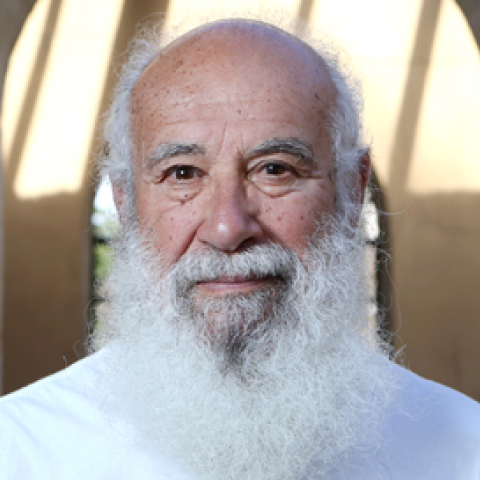
DOV FROHMAN
FOUNDER OF INTEL-ISRAEL
The electrical engineer got his start at Fairchild Semiconductor, the catalyst for many Silicon Valley companies. He followed many of his colleagues from there to Intel. A former VP at Intel, Frohman invented the erasable and programmable read-only memory called EPROM while troubleshooting an Intel product in the 1970s. At the time there were only RAM and ROM chips, both severely limited. Frohman’s invention was a paradigm shift for the personal computing industry. His new chip could be easily programmed and retain a long charge. EPROM is as important as the microprocessor itself, Intel founder Gordon Moore has said. Now retired, Frohman founded Intel-Israel and was its first general manager.

YEHUDA ZISAPEL
CO-FOUNDER OF RAD GROUP
The “Bill Gates of Israel” behind the world’s most successful incubator of telecom-related startups.
Yehuda Zisapel is the co-founder of RAD Group, a conglomerate of voice and date communications companies that collectively employs about 3,500 people. Business 2.0 magazine calls him the world’s most successful incubator of telecom-related startups, given that five of the companies he co-founded with his younger brother Zohar are traded on the NASDAQ. RAD’s first commercial success was a miniature modem. The company also founded and backed dozens of spinoffs, the first of which was Lannet Data Communications. This company developed the first Ethernet switch for data communications, eliminating the need for expensive coaxial cables.

ZOHAR ZISAPEL
CO-FOUNDER OF RAD GROUP
Zohar is a successful Israeli entrepreneur in Israel’s advanced high-tech industry, sometimes referred to as "the Bill Gates of Israel." The RAD Group of companies he co-founded with his brother, Yehuda, has been called "the world's most successful incubator" of telecom-related start-ups by Business 2.0 magazine.
He received his B.Sc. and M.Sc. in electrical engineering from the Technion and later earned an MBA from Tel Aviv University.
Following his undergraduate education at the Technion, Zisapel completed his compulsory service in the Israel Defense Forces (IDF), after which he was hired by the Electronic Research Department of the Ministry of Defense in Tel Aviv, ultimately serving as its head. He received the Israel Defense Prize in 1979 for his work.
XRVISION
XRVision has its roots in Israel. The firm received some media attention in the fallout from the failed Jan 6 coup. Although the firm is stated to be focused on face recognition technology, it was hired by former US President Donald Trump's inner circle throughout the 2020 election cycle and after.
It came to light in Feb 2023 that the firm's Yaacov Apelbaum had allegedly received unauthorized access to Hunter Biden's 'laptop' - a hard drive belonging to Biden that fell into the hands of his father's political enemies - via Donald Trump's then personal lawyer, Rudy Giulliani.

ZOHAR ZISAPEL
CO-FOUNDER OF RAD GROUP
Zohar is a successful Israeli entrepreneur in Israel’s advanced high-tech industry, sometimes referred to as "the Bill Gates of Israel." The RAD Group of companies he co-founded with his brother, Yehuda, has been called "the world's most successful incubator" of telecom-related start-ups by Business 2.0 magazine.
He received his B.Sc. and M.Sc. in electrical engineering from the Technion and later earned an MBA from Tel Aviv University.
Following his undergraduate education at the Technion, Zisapel completed his compulsory service in the Israel Defense Forces (IDF), after which he was hired by the Electronic Research Department of the Ministry of Defense in Tel Aviv, ultimately serving as its head. He received the Israel Defense Prize in 1979 for his work.

ZOHAR ZISAPEL
CO-FOUNDER OF RAD GROUP
Zohar is a successful Israeli entrepreneur in Israel’s advanced high-tech industry, sometimes referred to as "the Bill Gates of Israel." The RAD Group of companies he co-founded with his brother, Yehuda, has been called "the world's most successful incubator" of telecom-related start-ups by Business 2.0 magazine.
He received his B.Sc. and M.Sc. in electrical engineering from the Technion and later earned an MBA from Tel Aviv University.
Following his undergraduate education at the Technion, Zisapel completed his compulsory service in the Israel Defense Forces (IDF), after which he was hired by the Electronic Research Department of the Ministry of Defense in Tel Aviv, ultimately serving as its head. He received the Israel Defense Prize in 1979 for his work.

